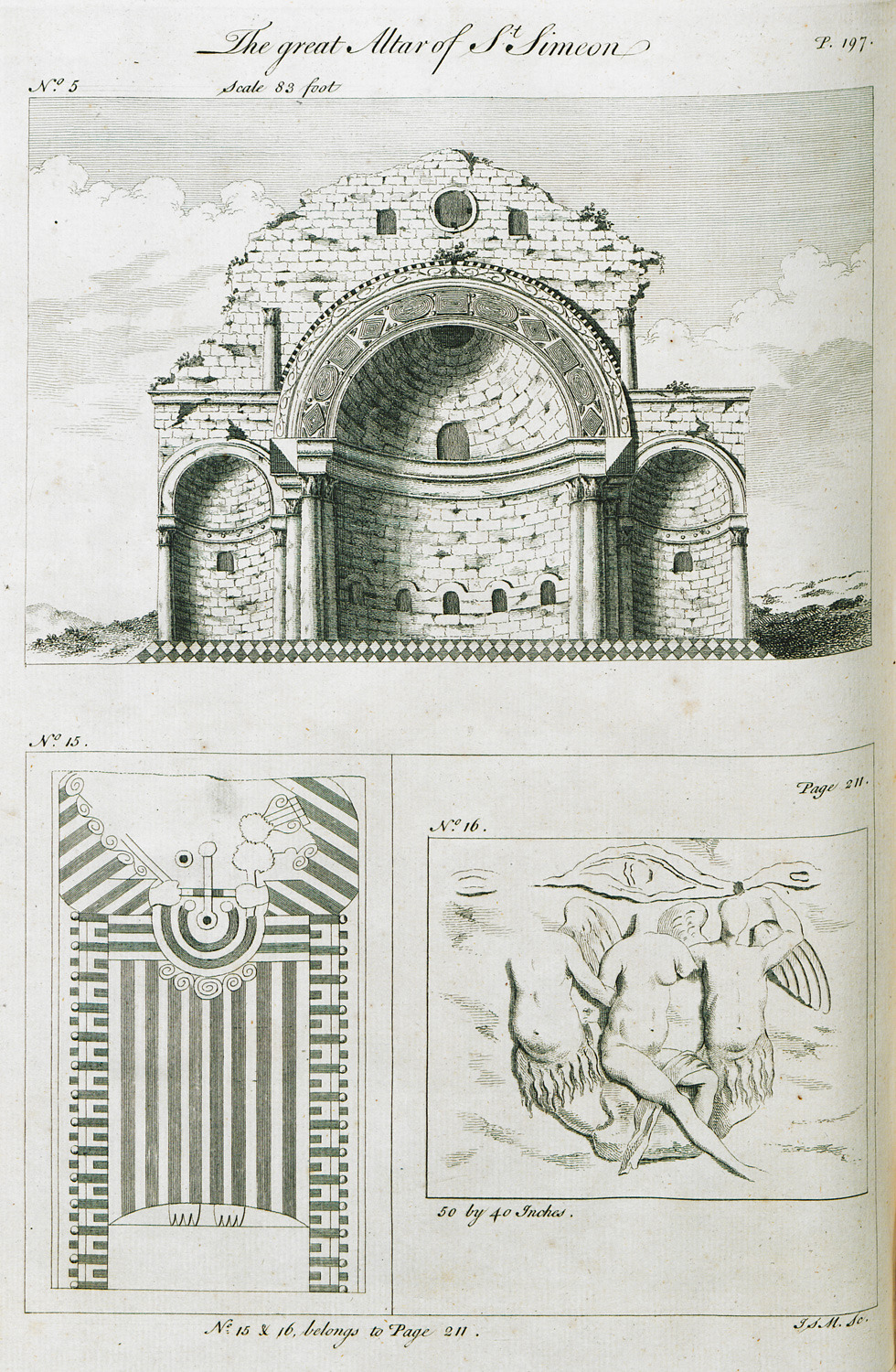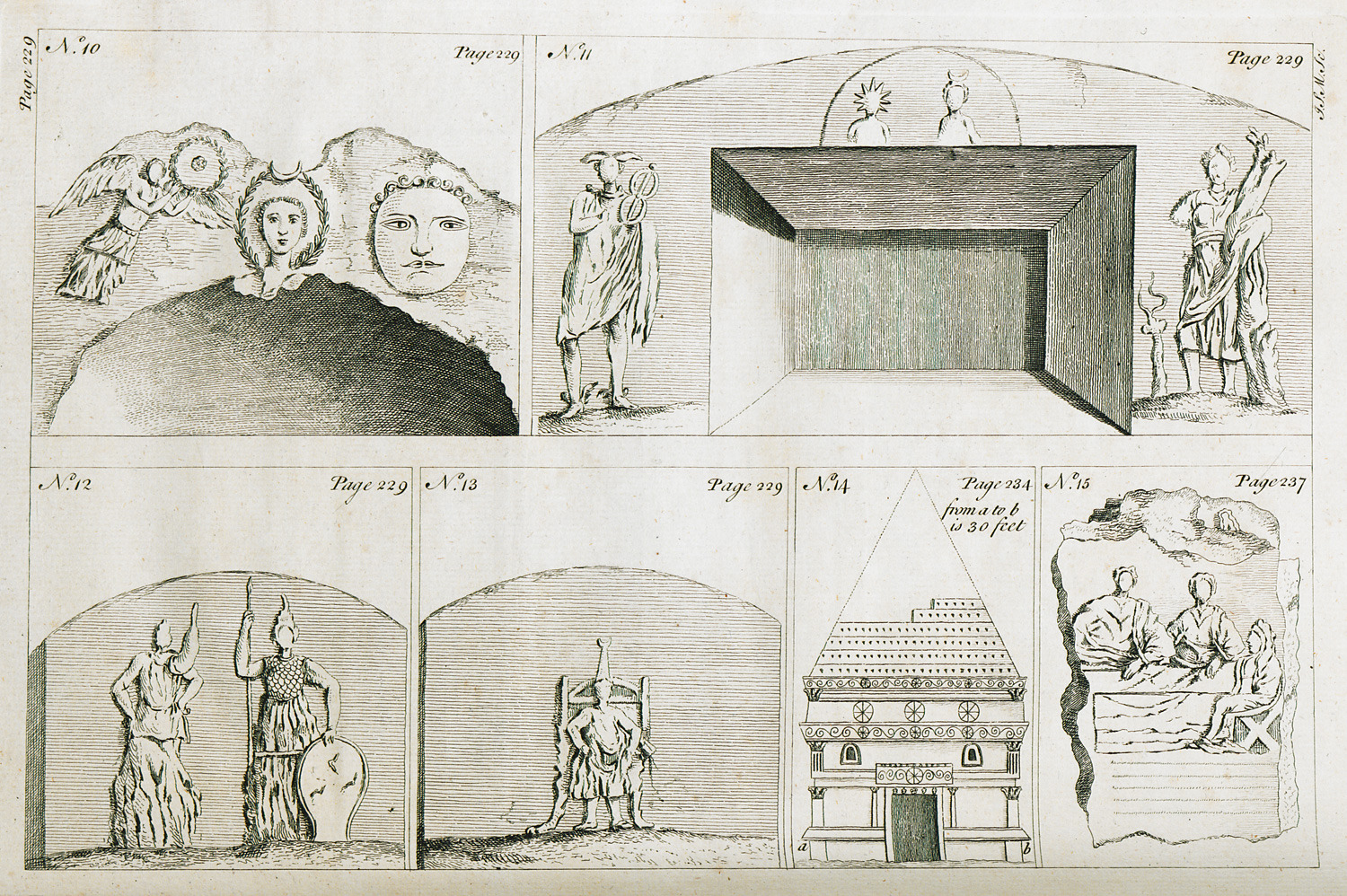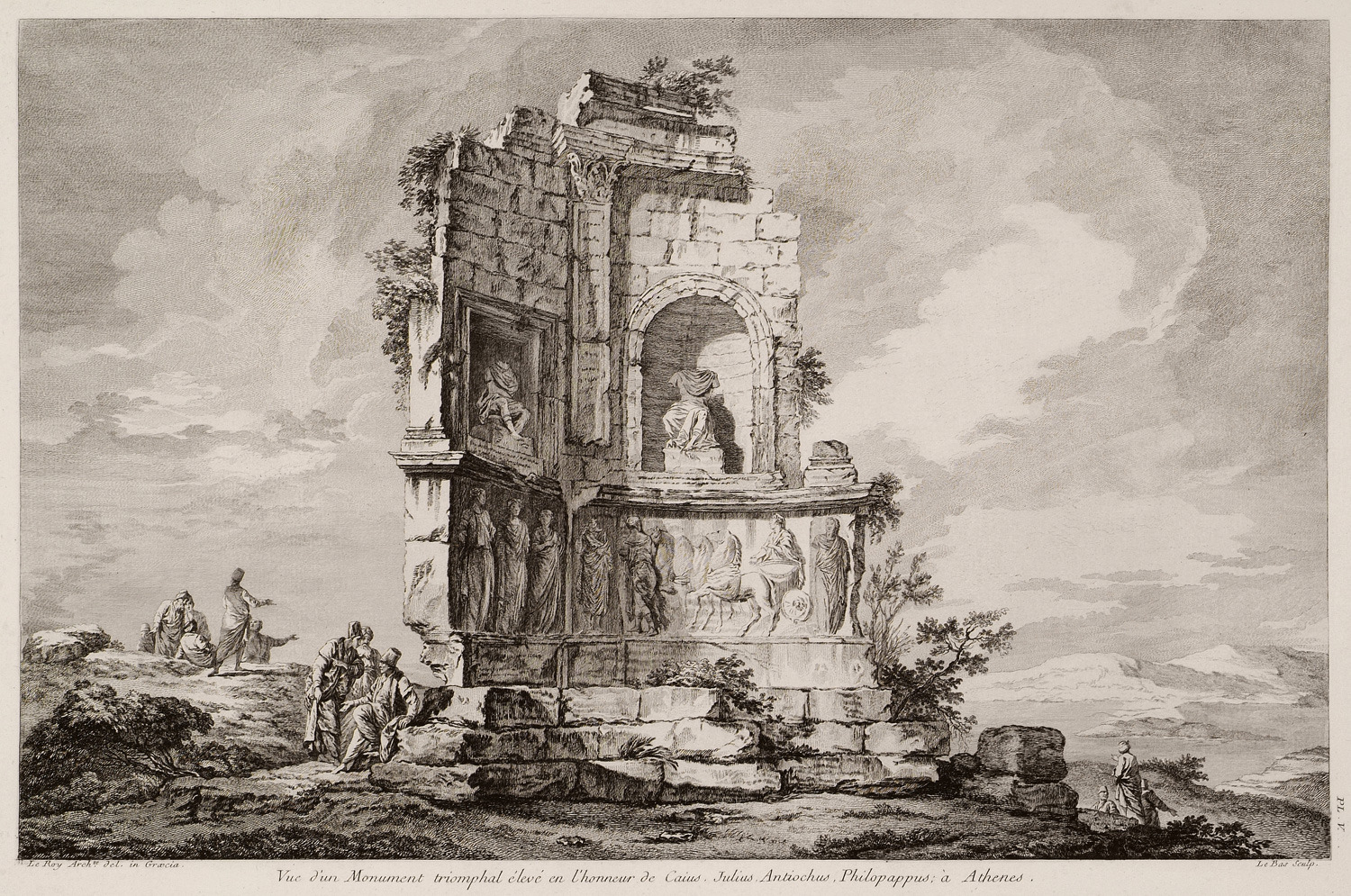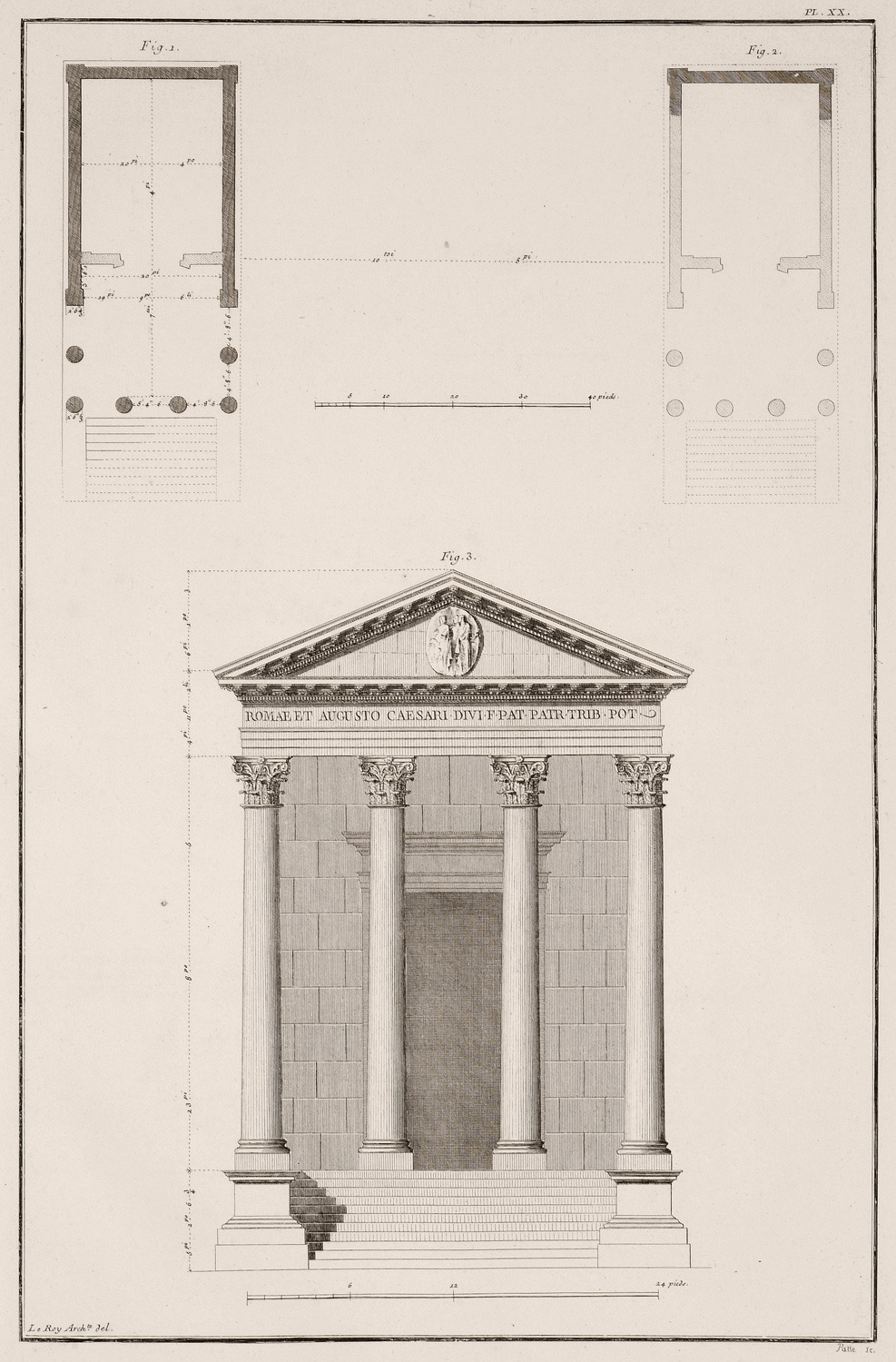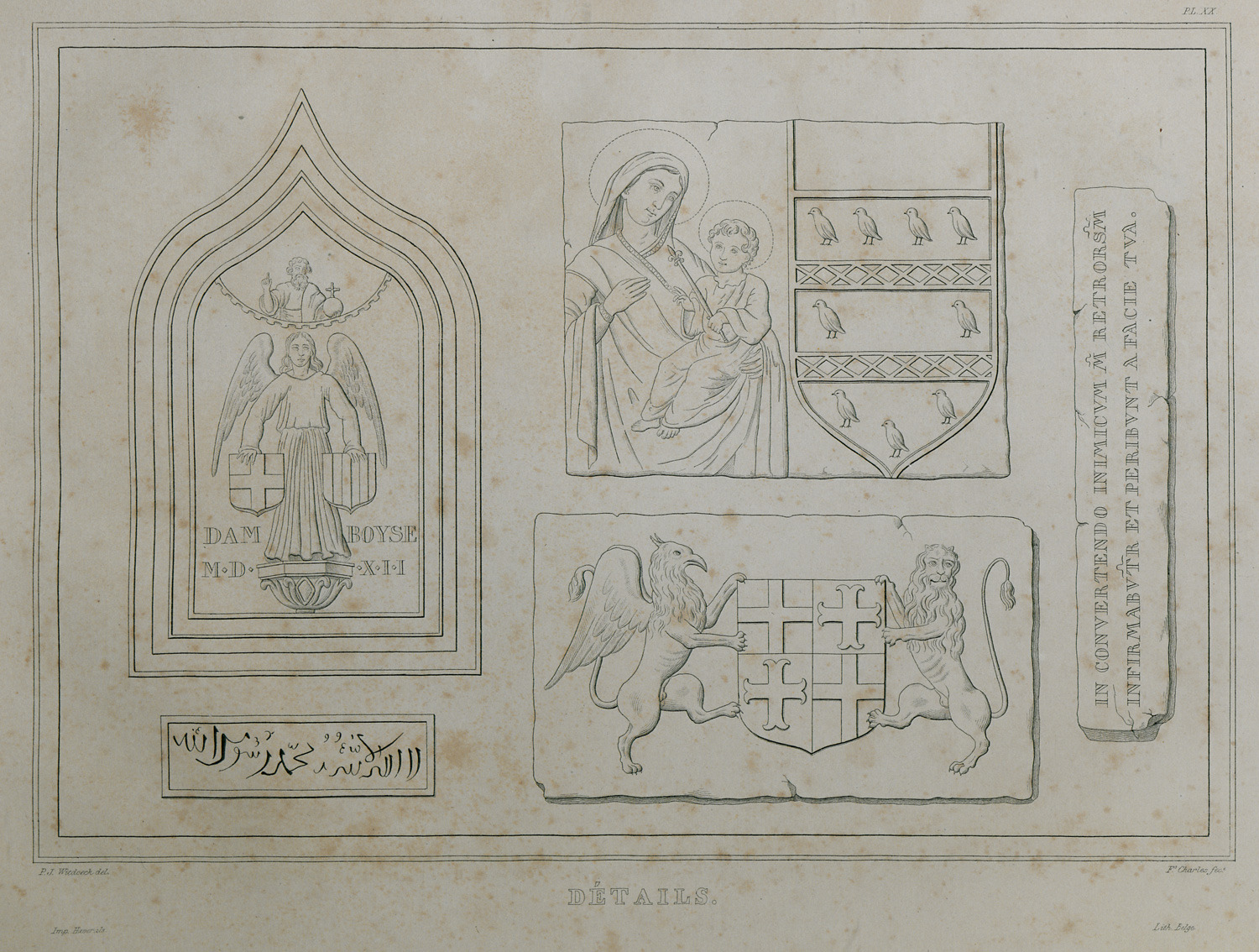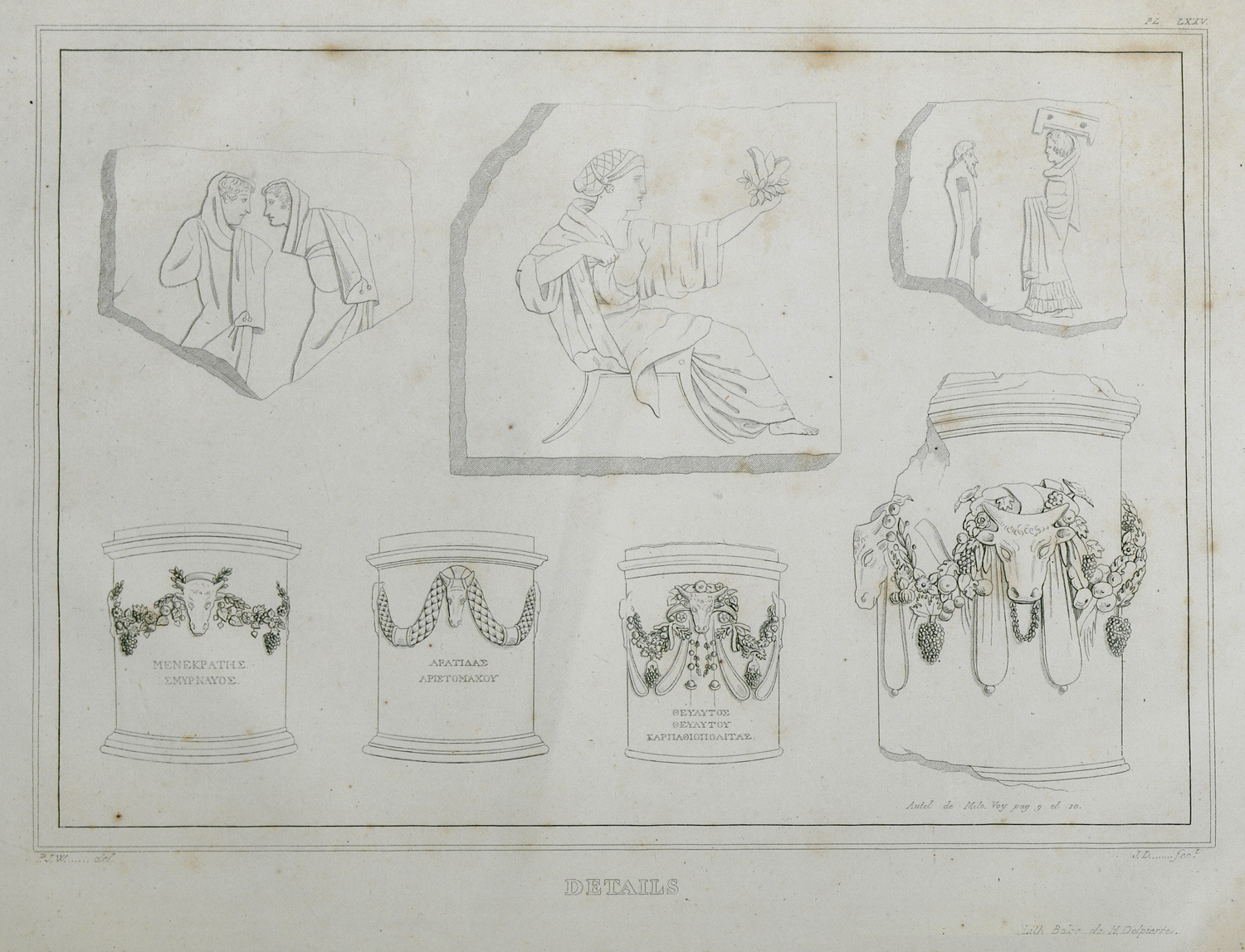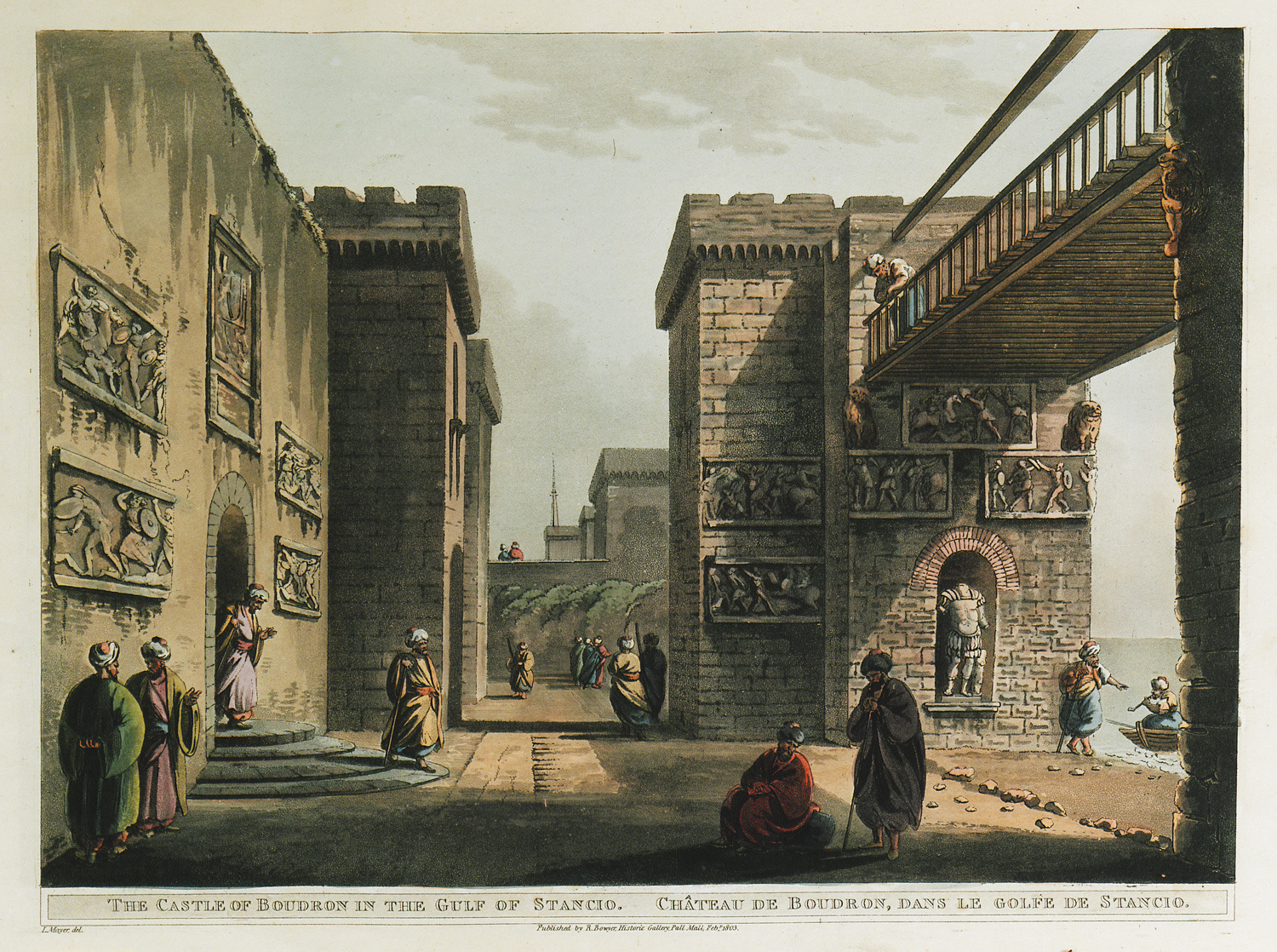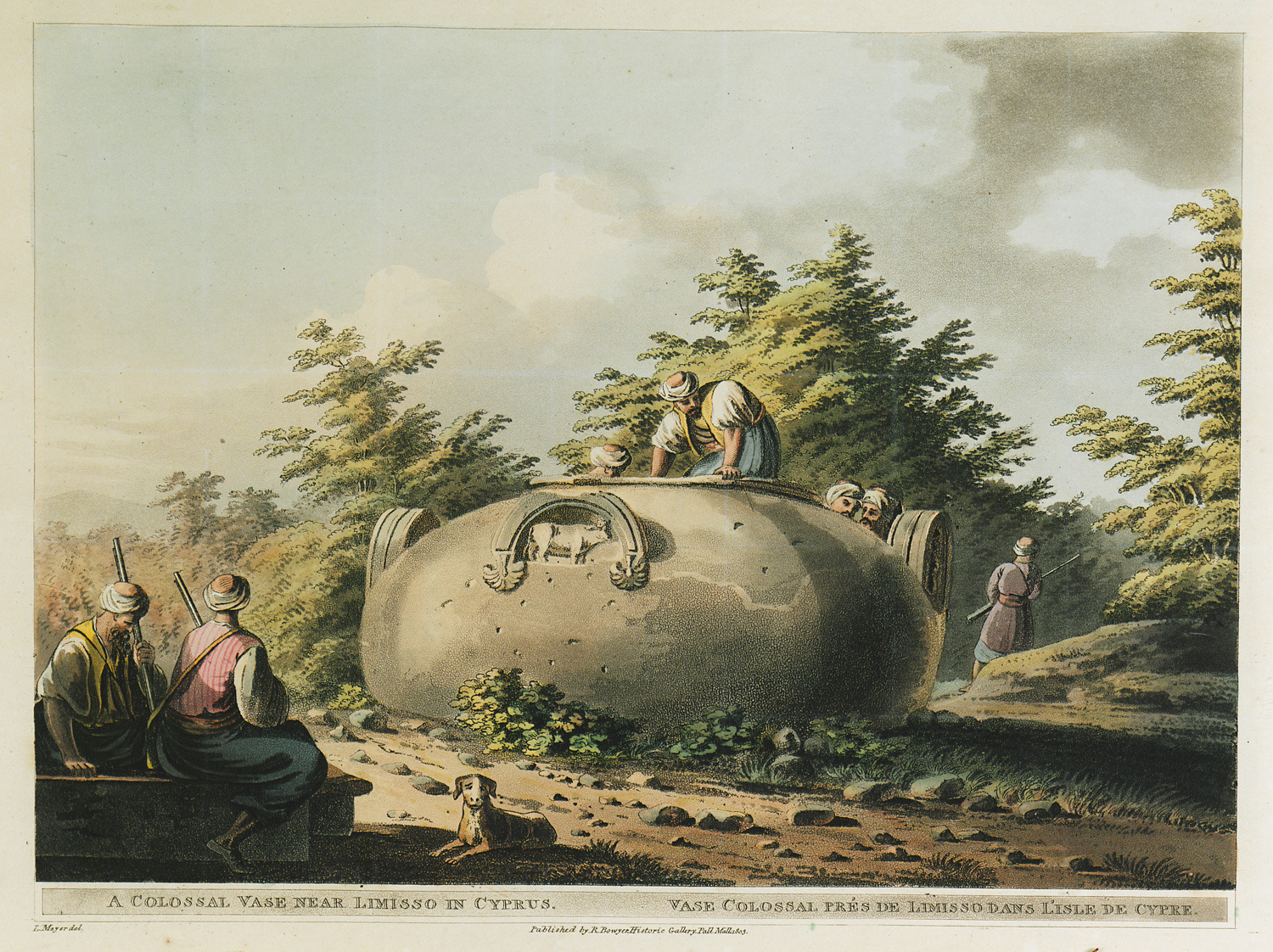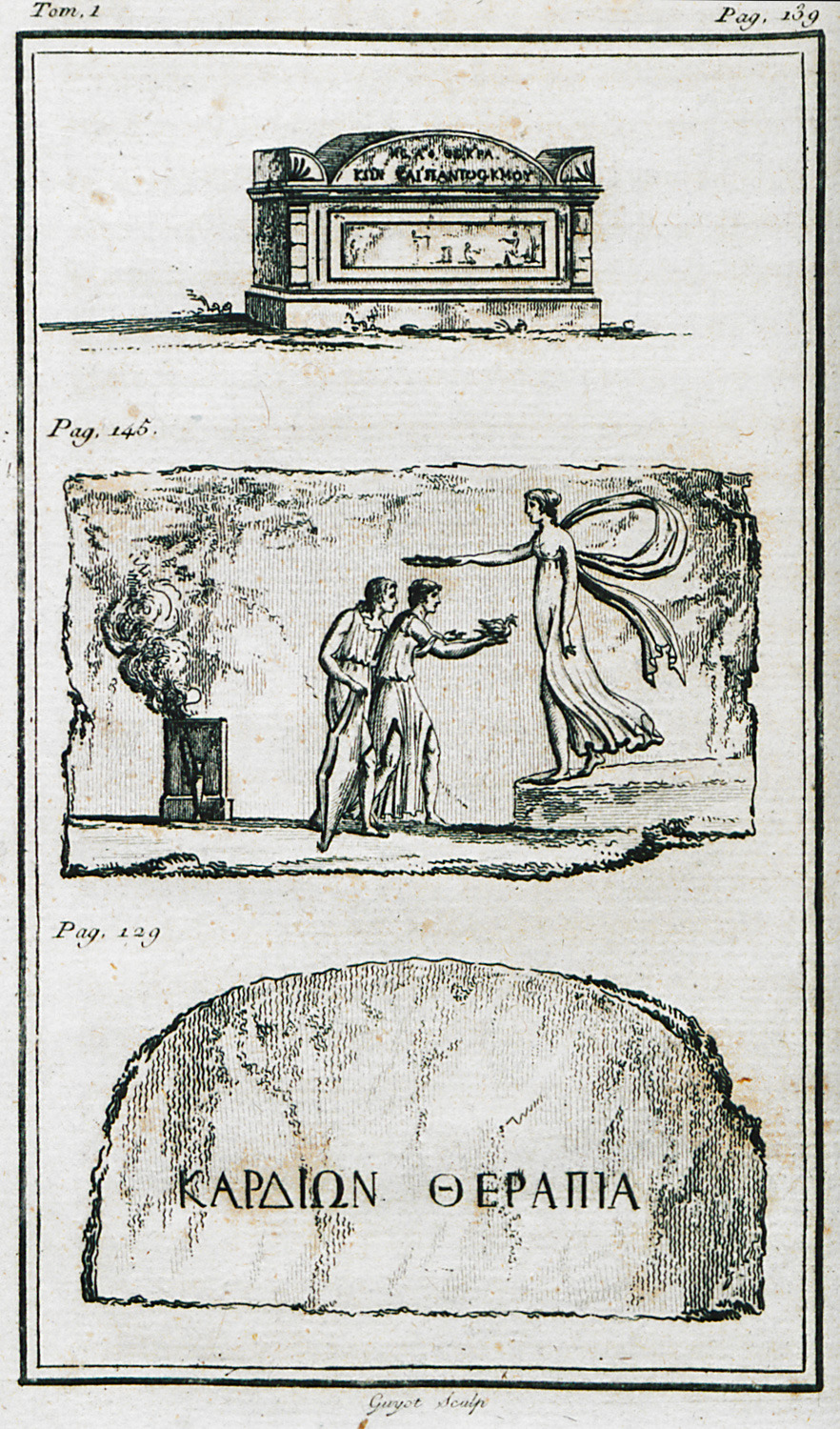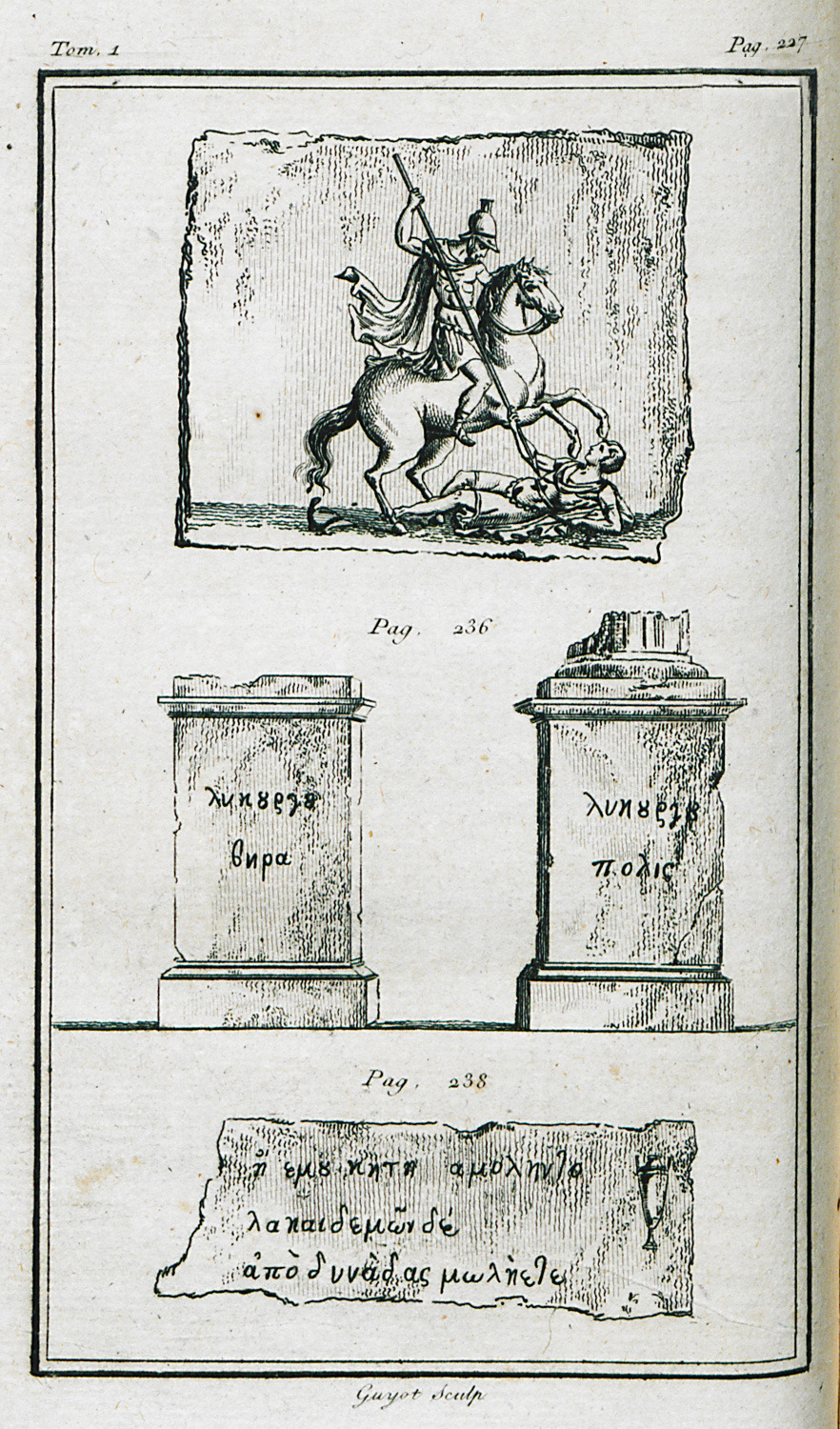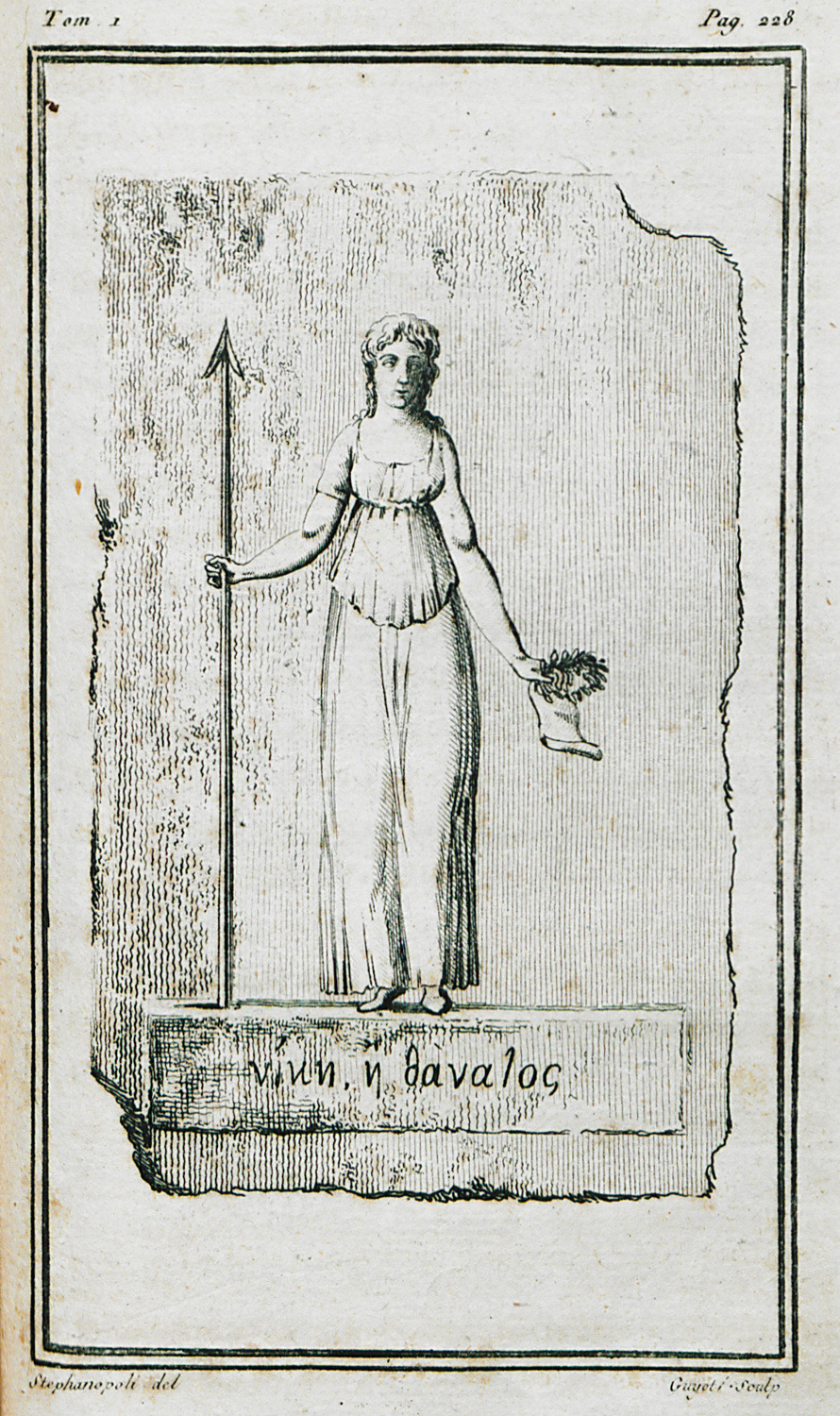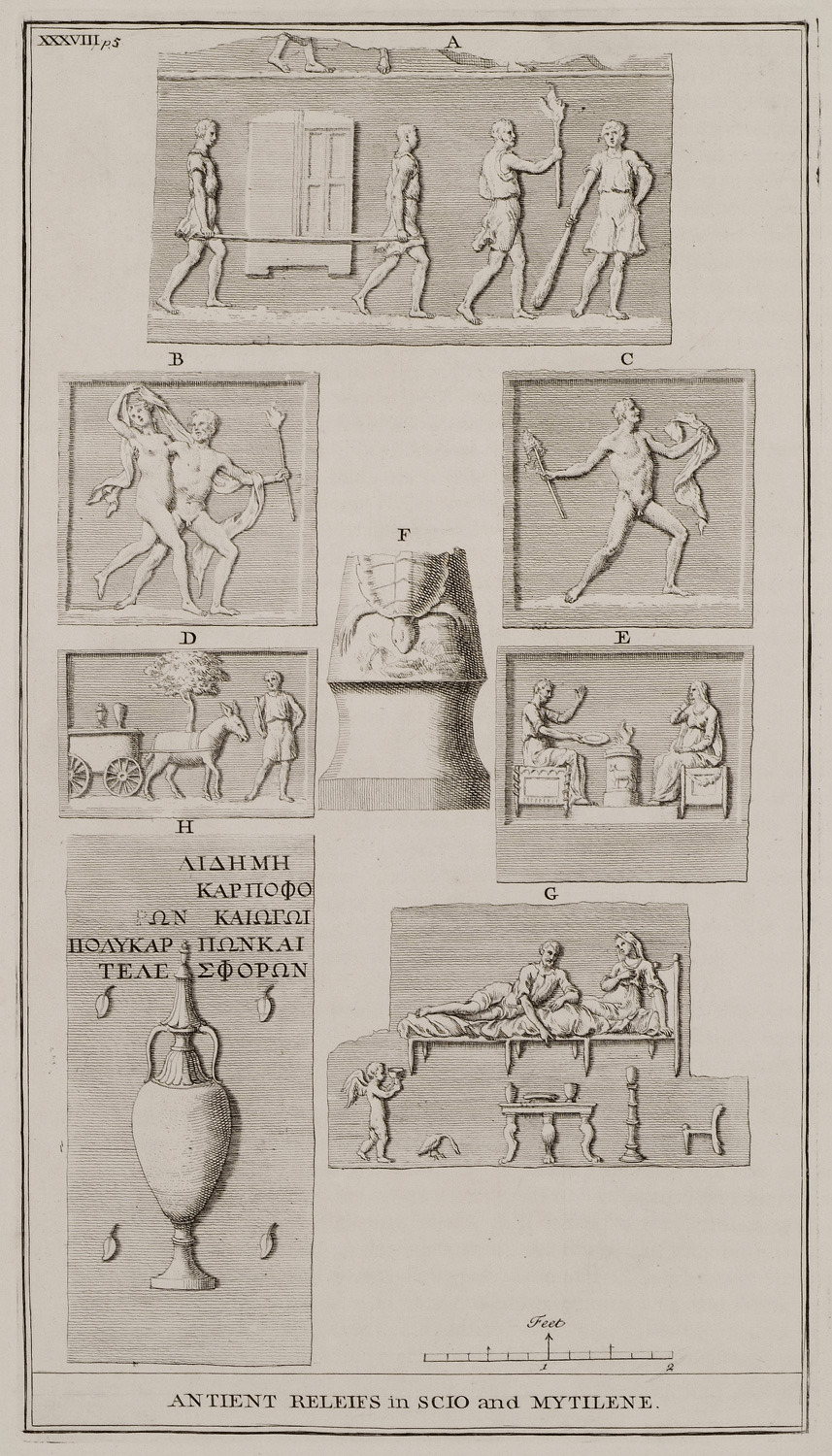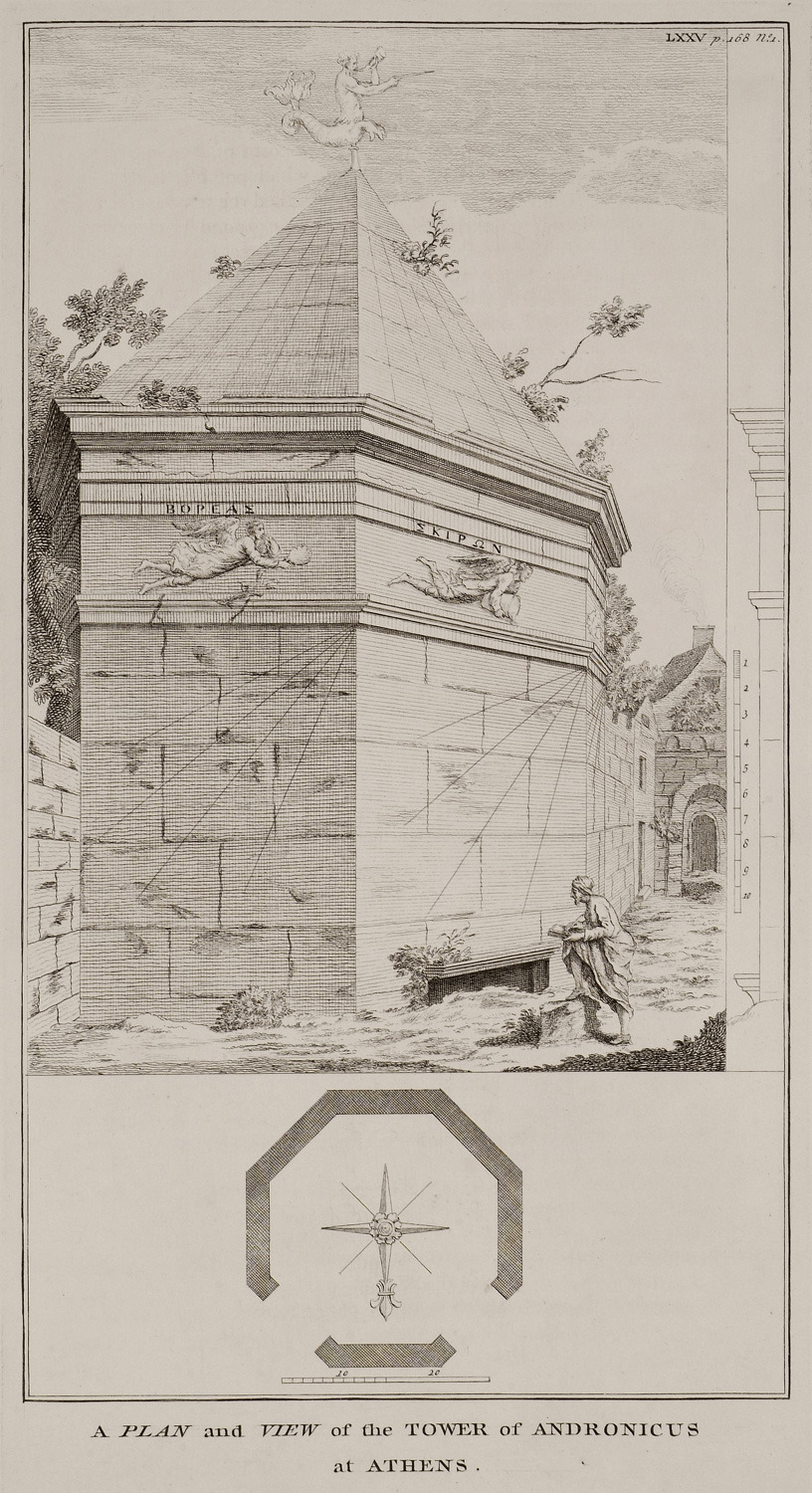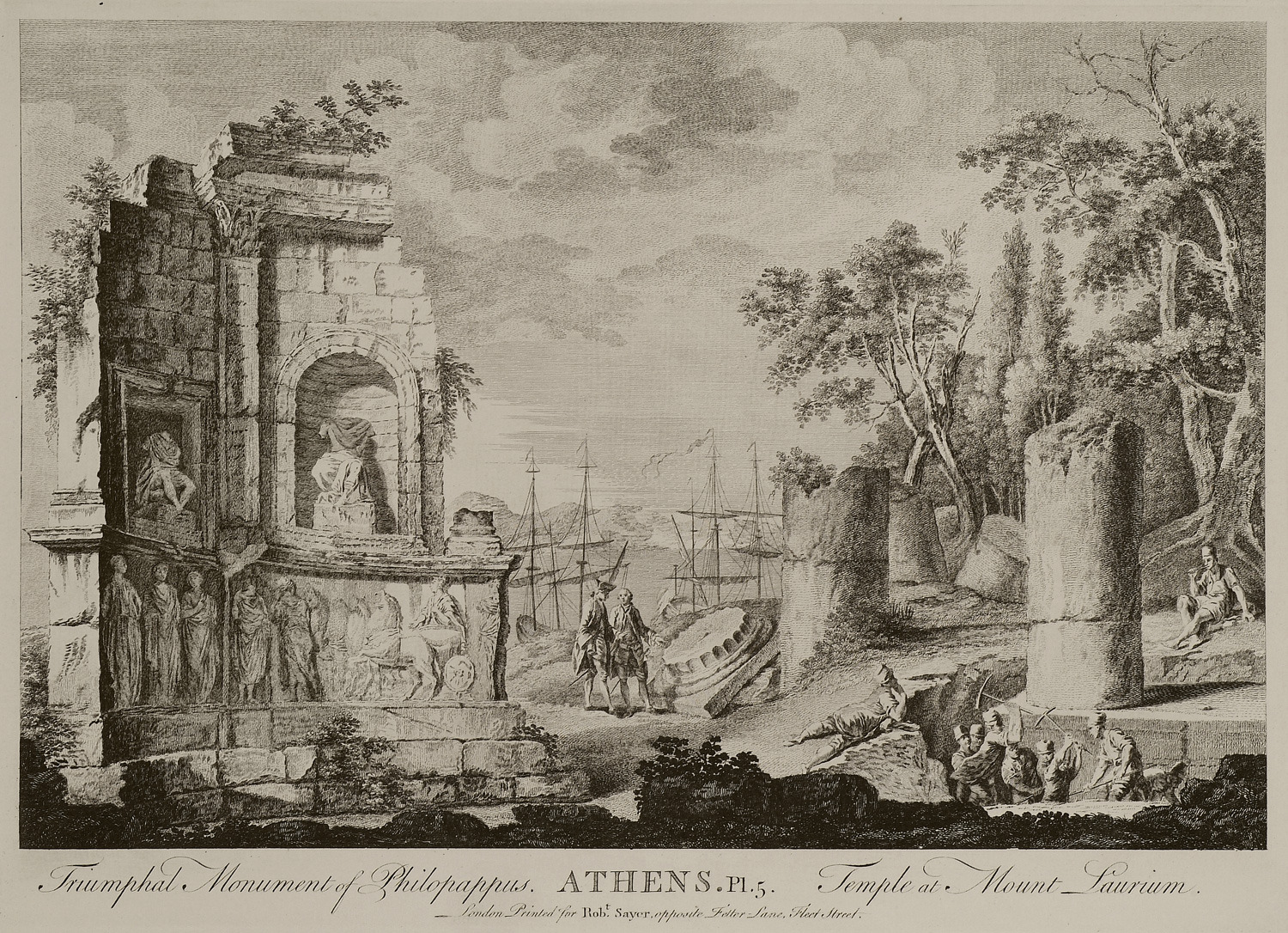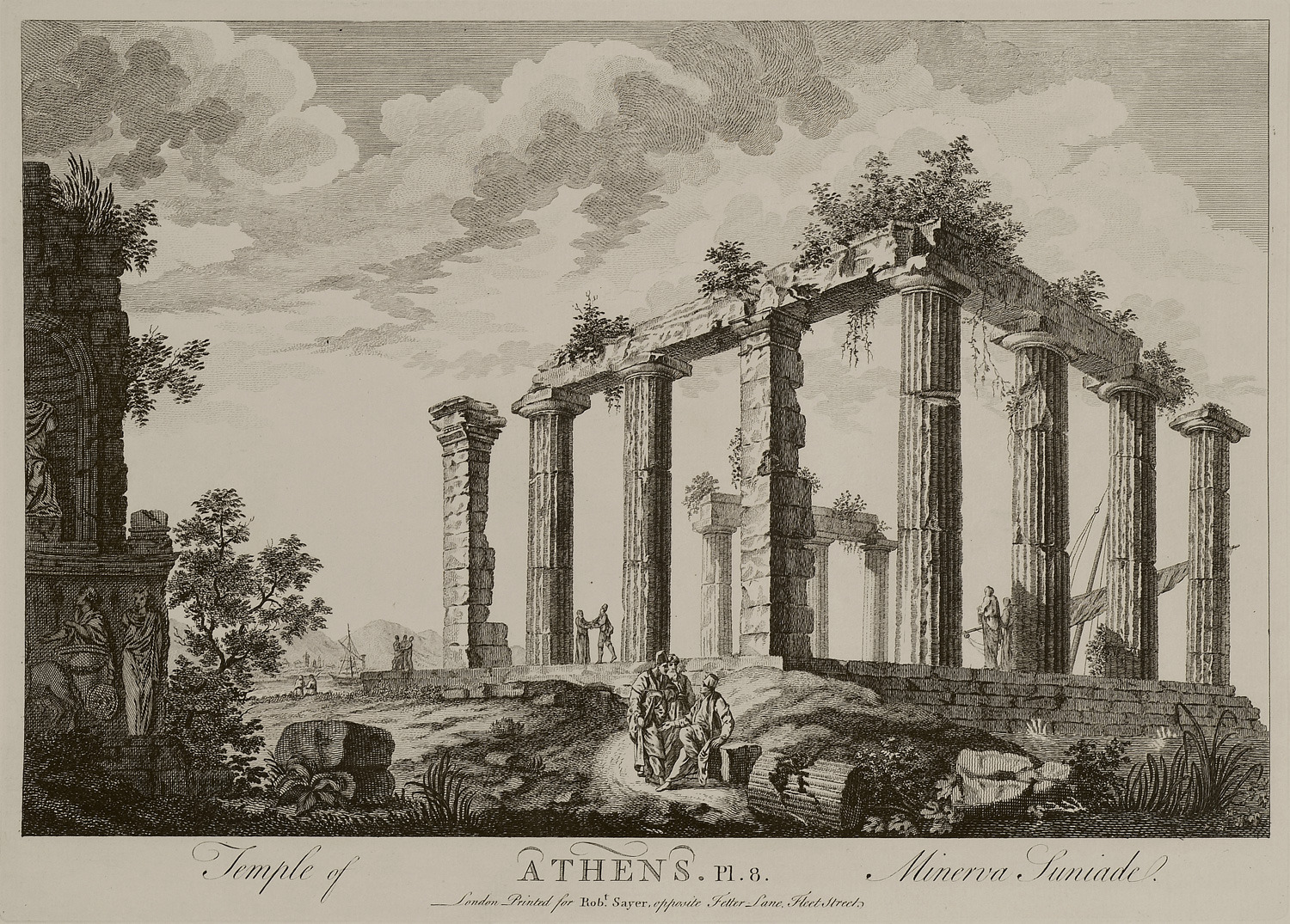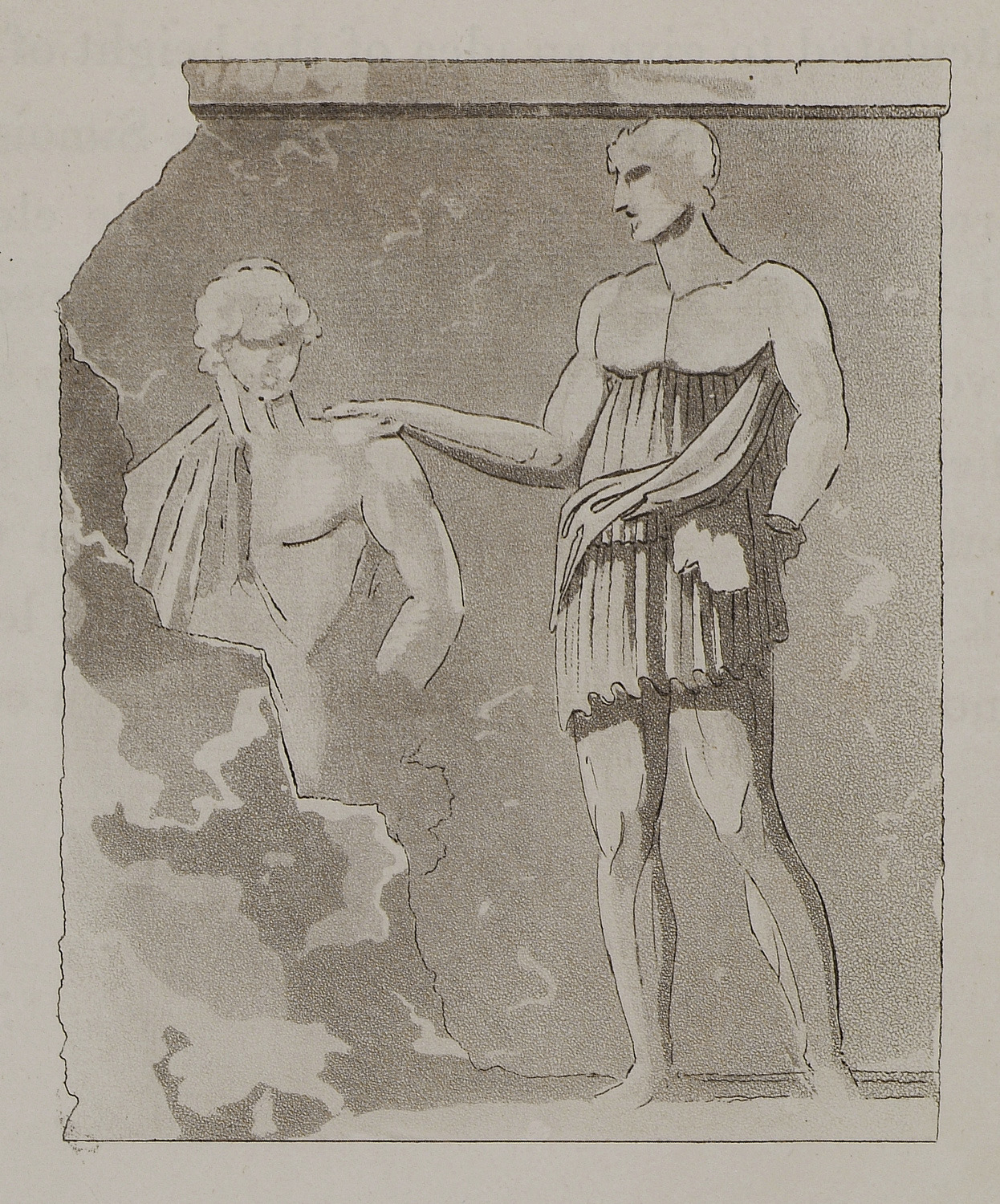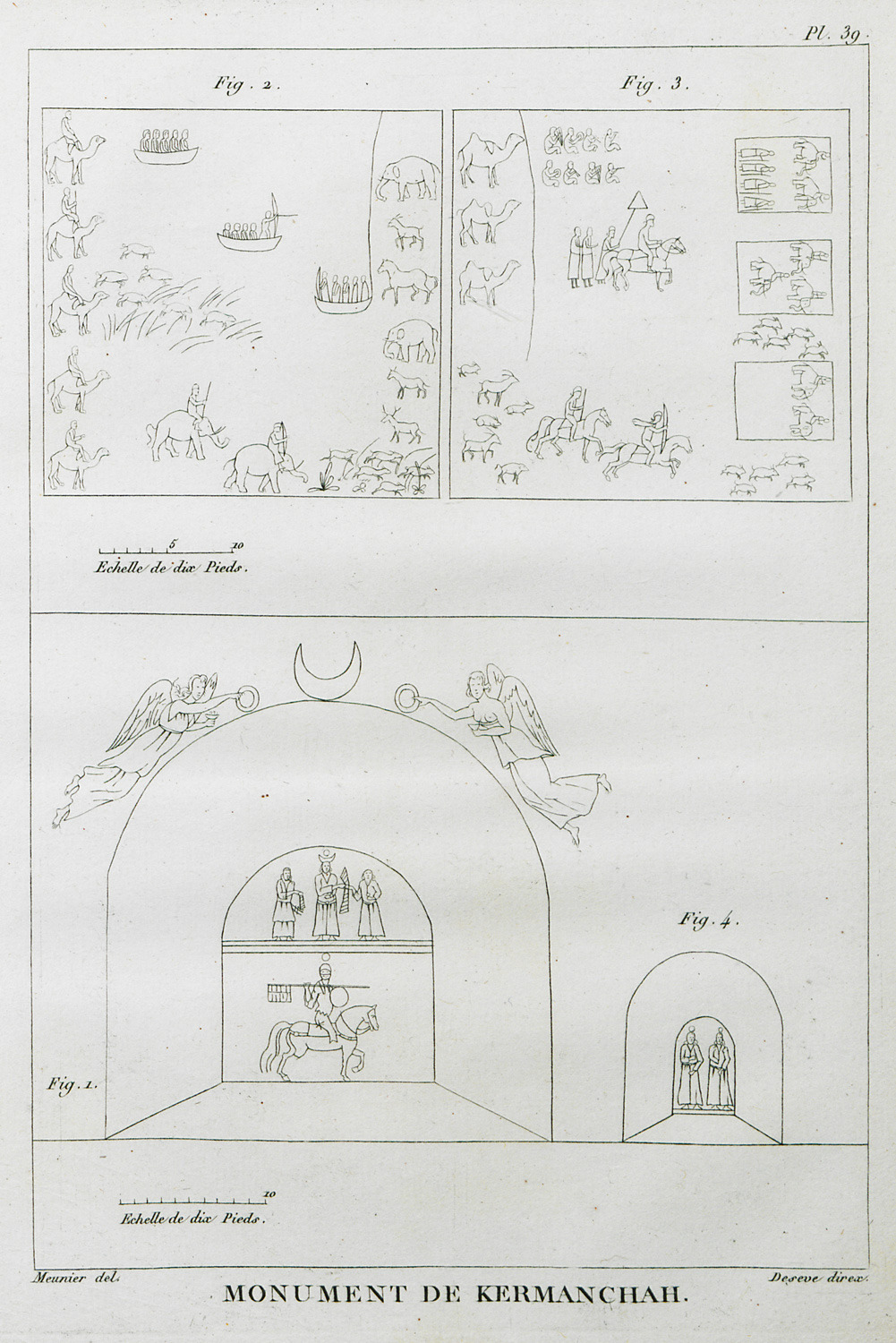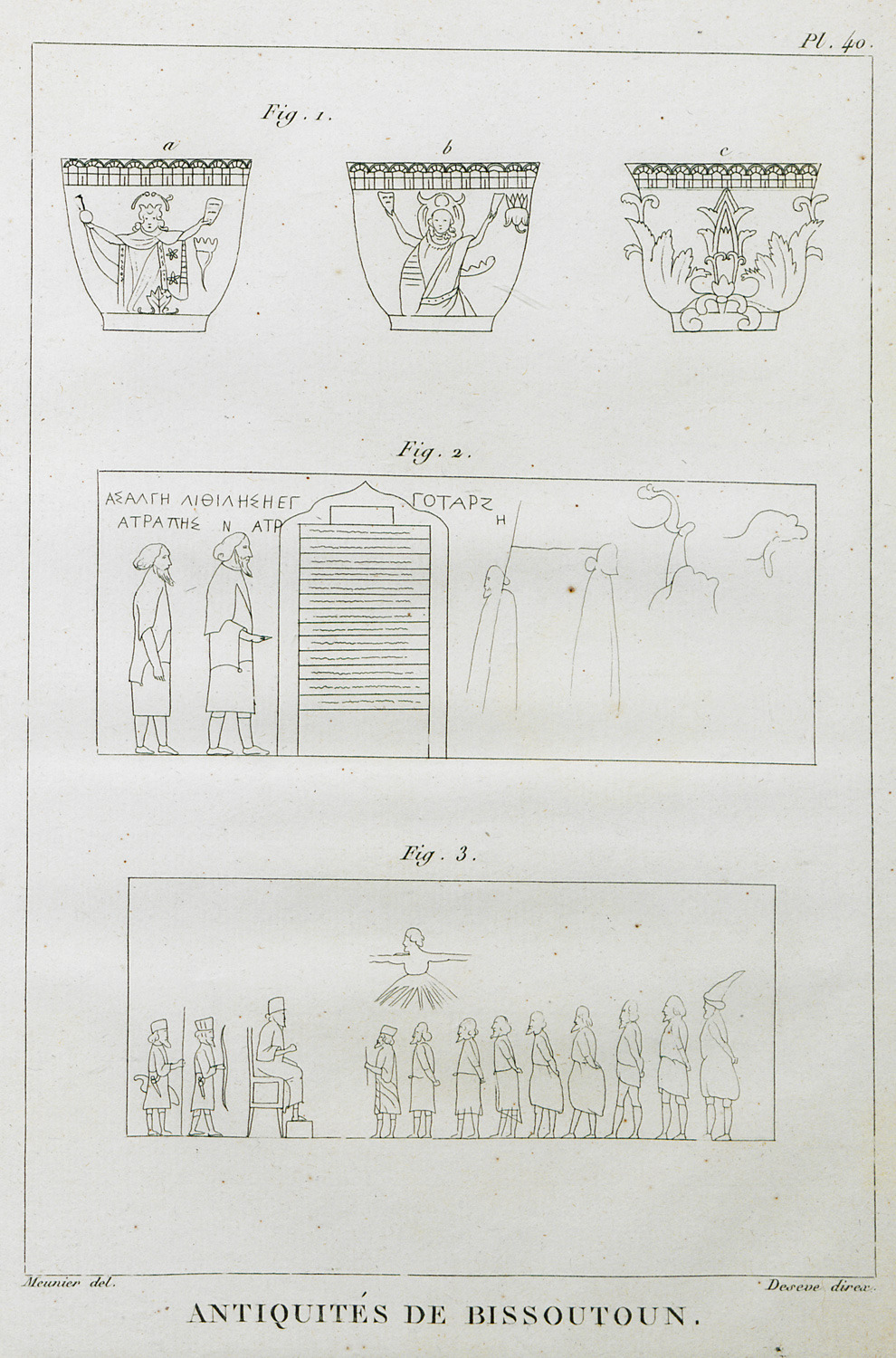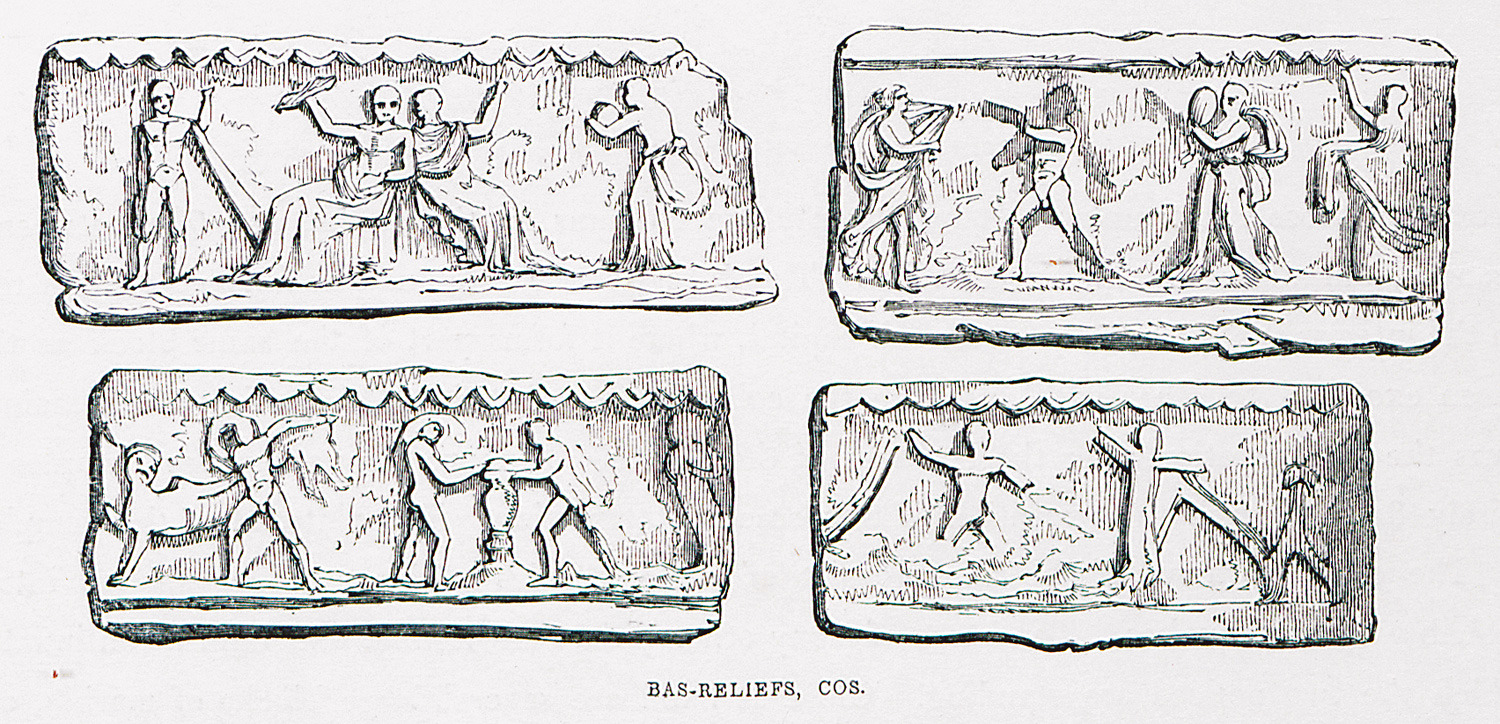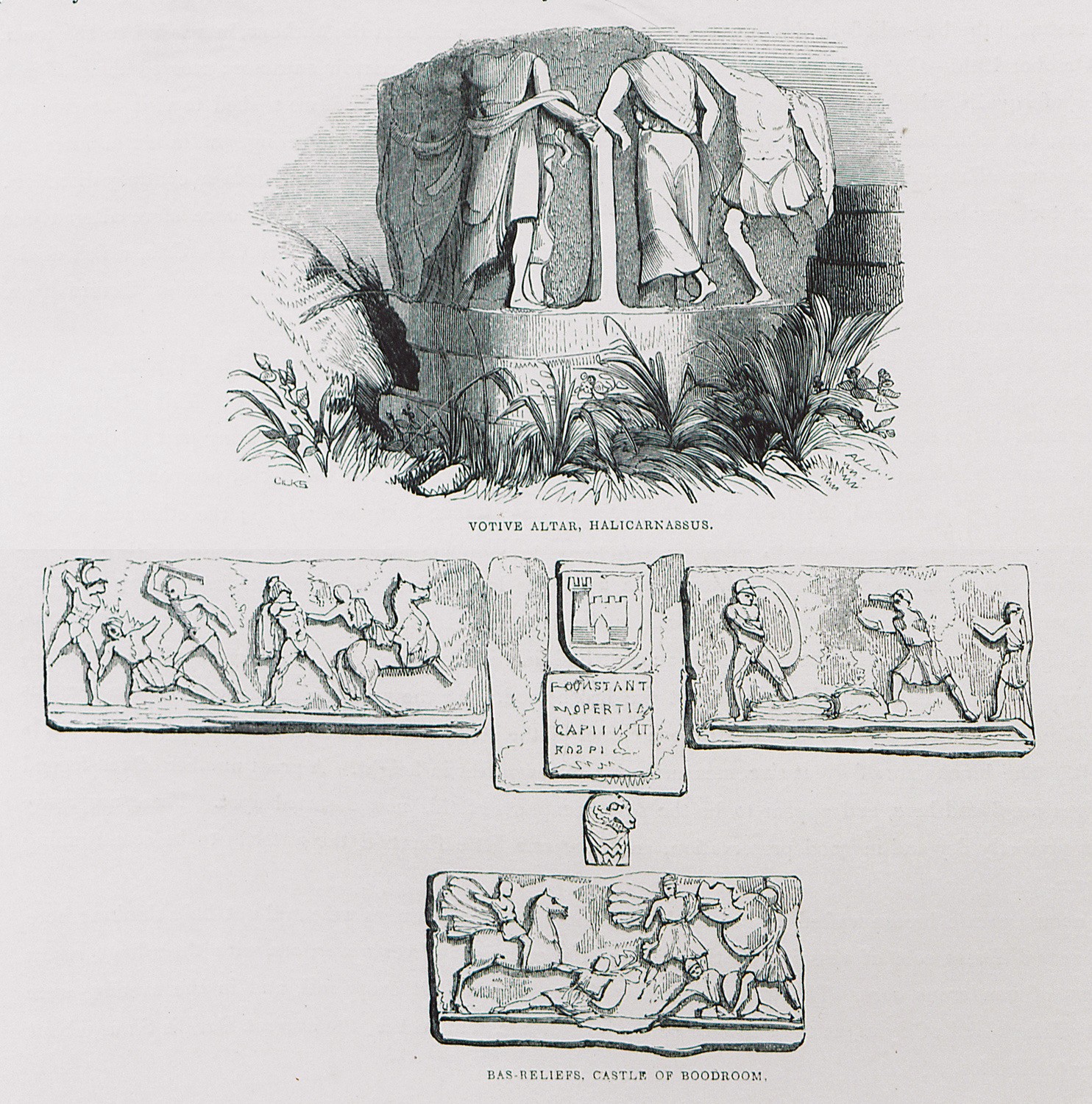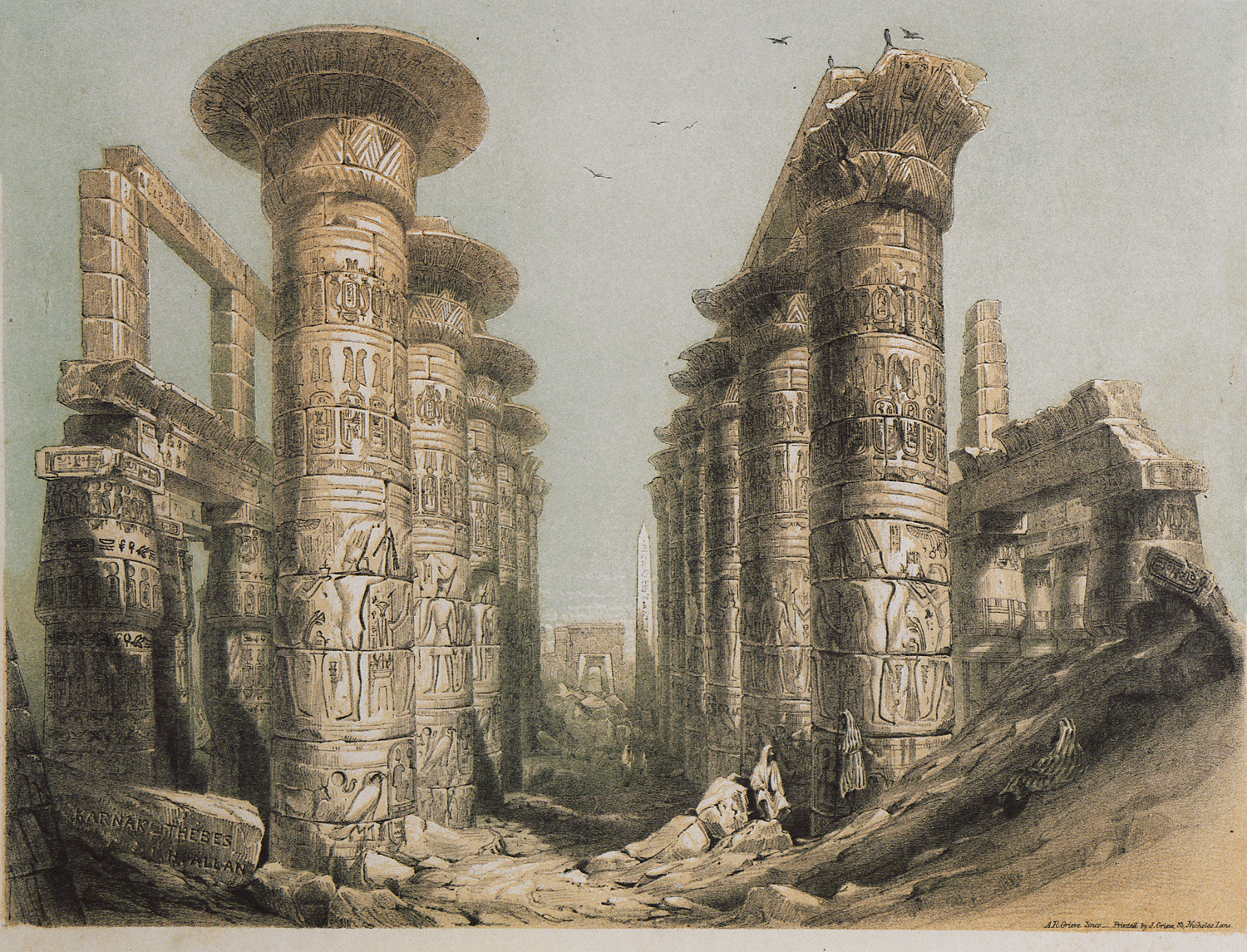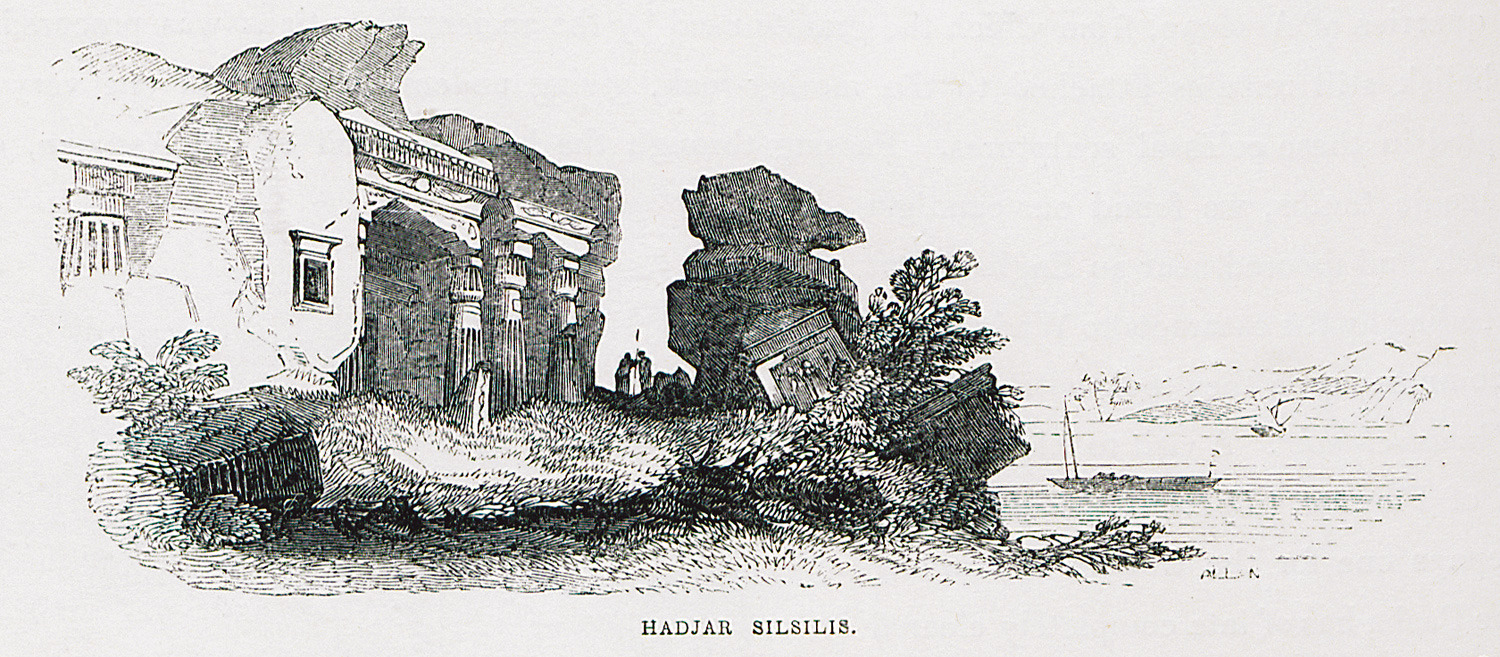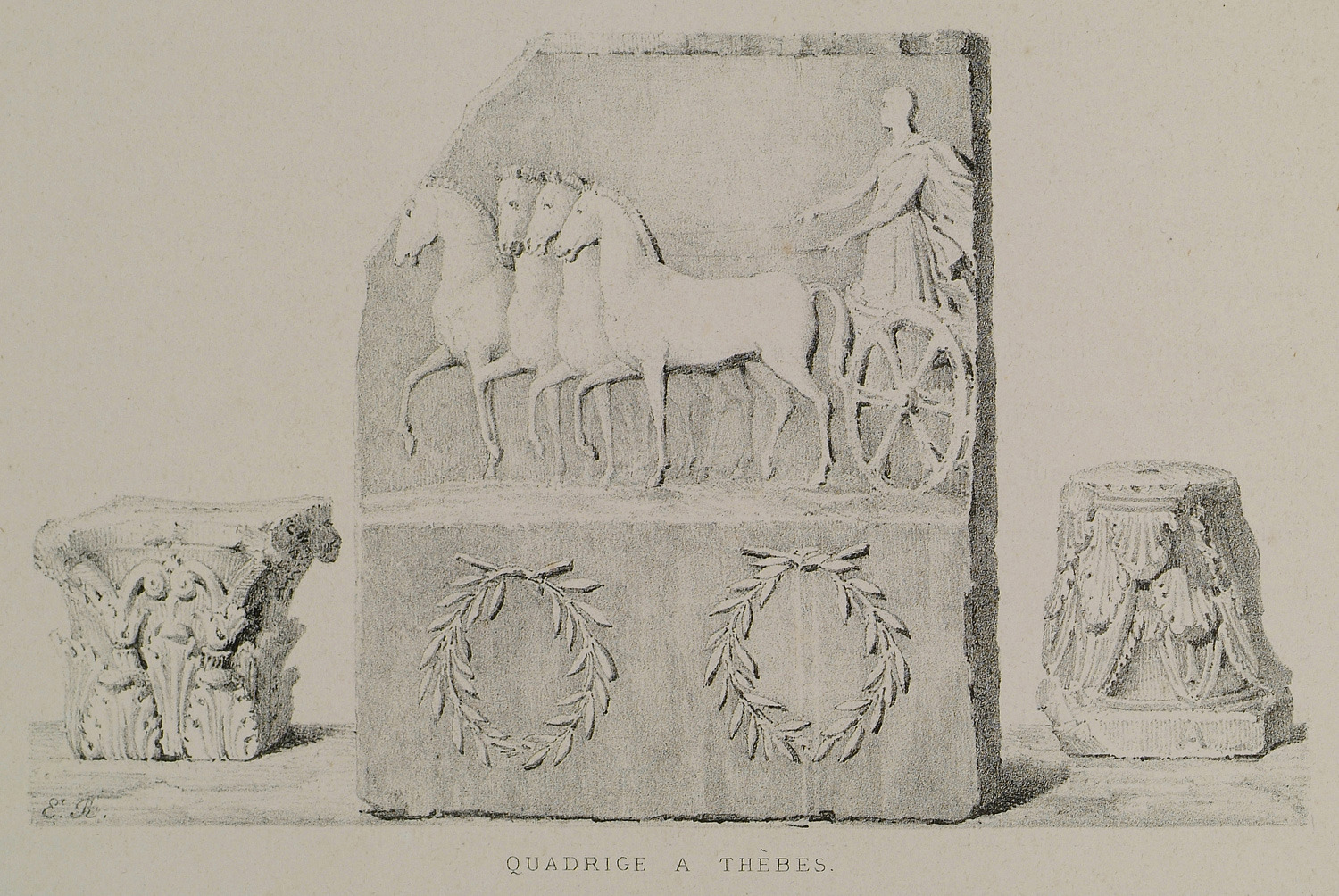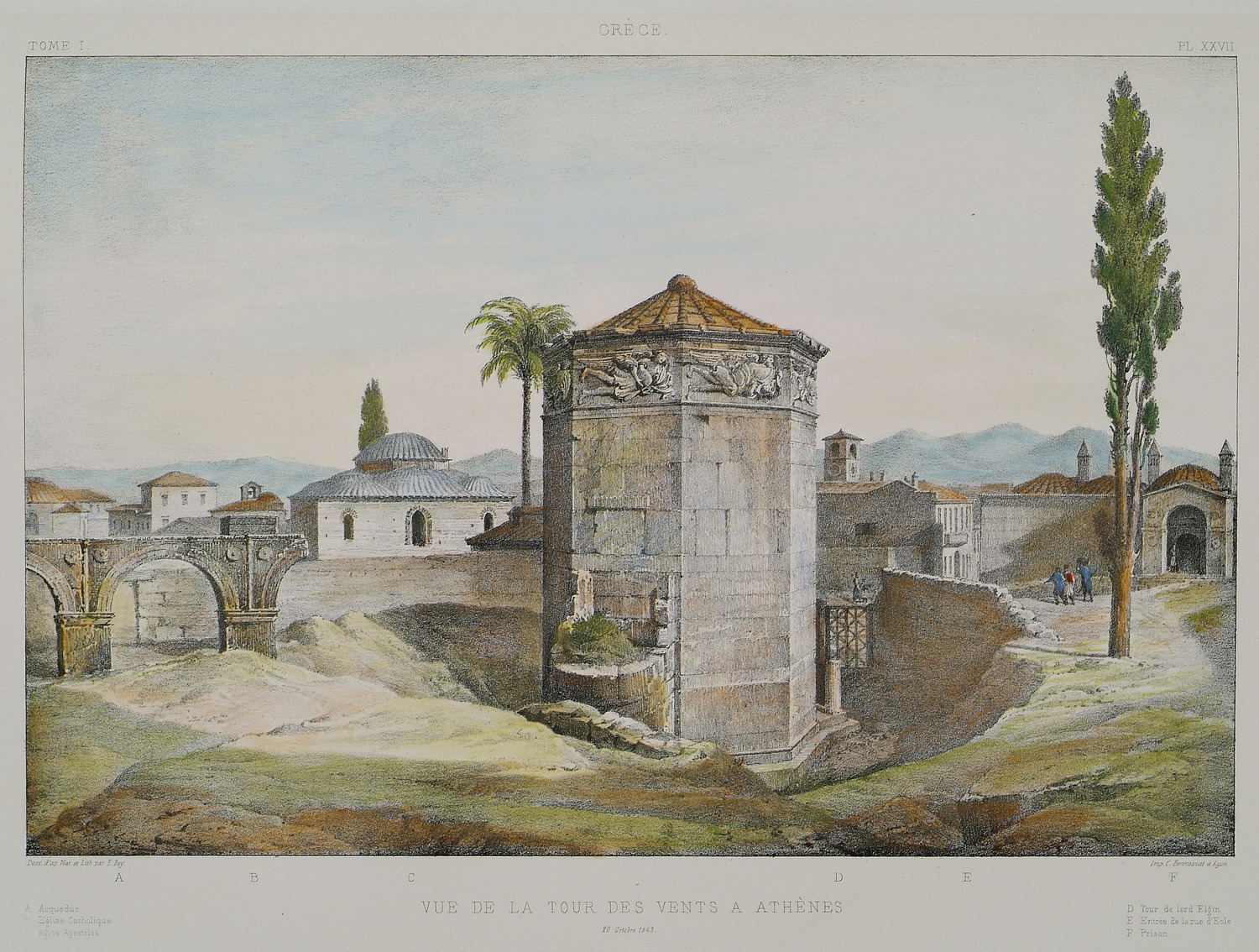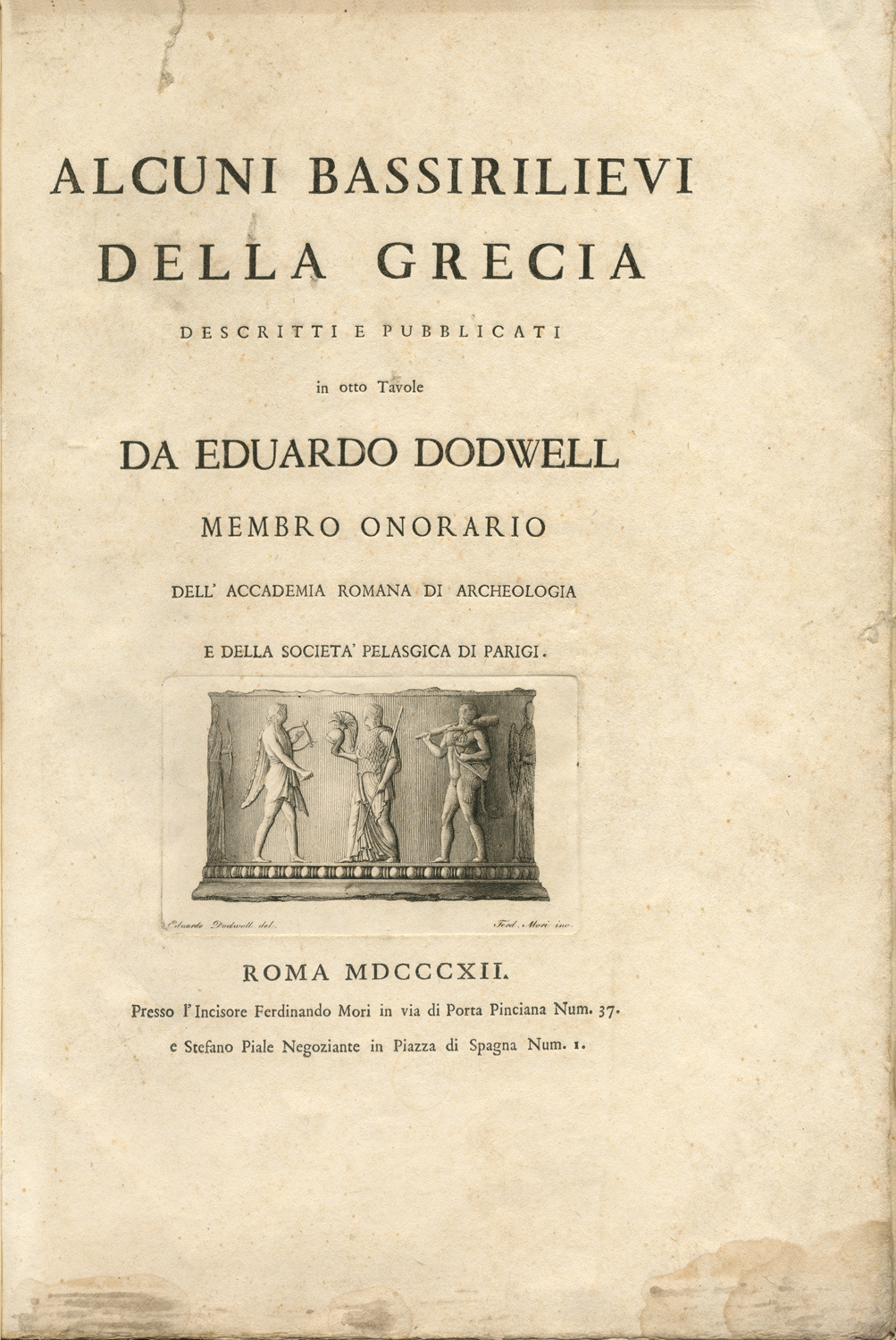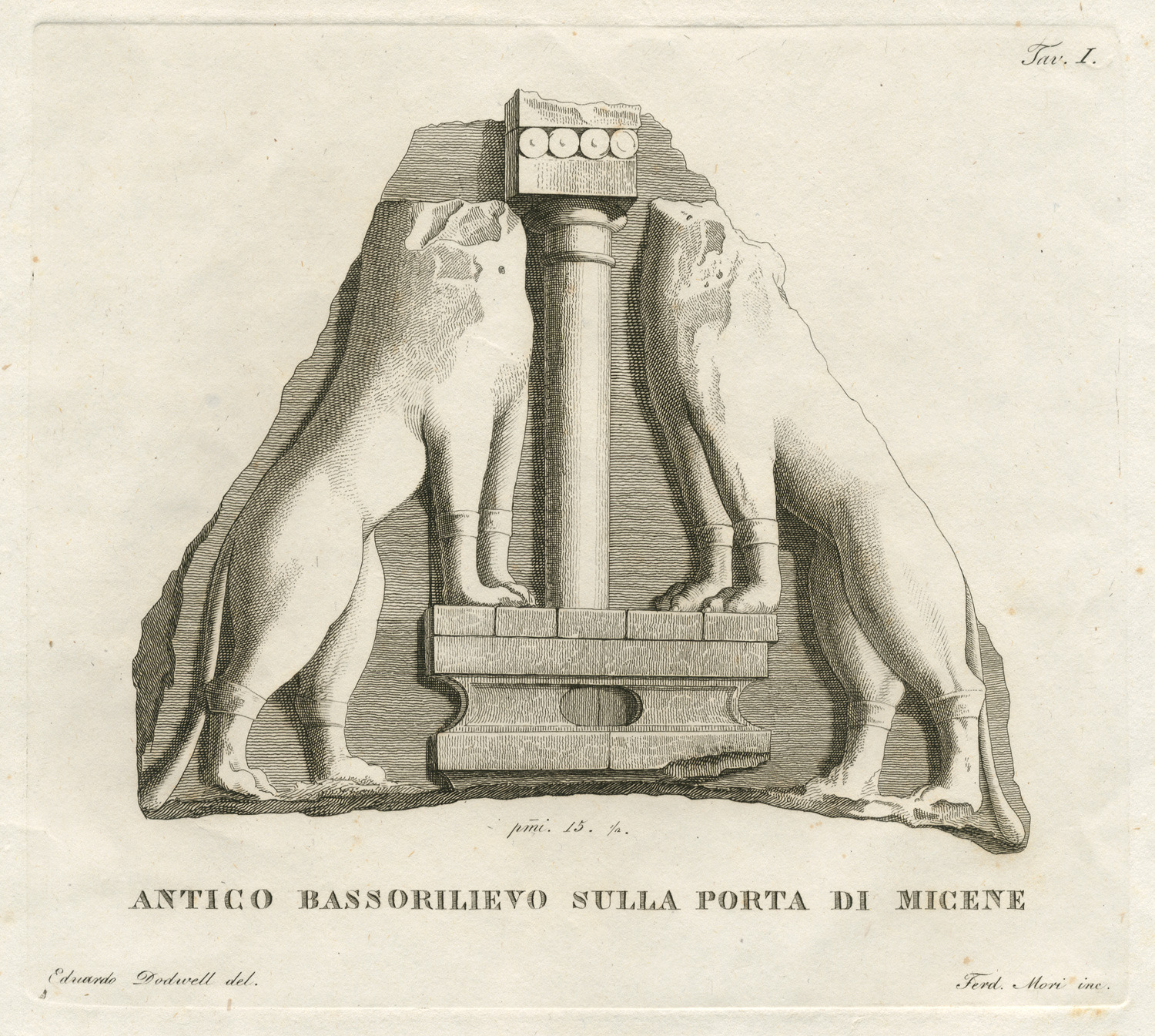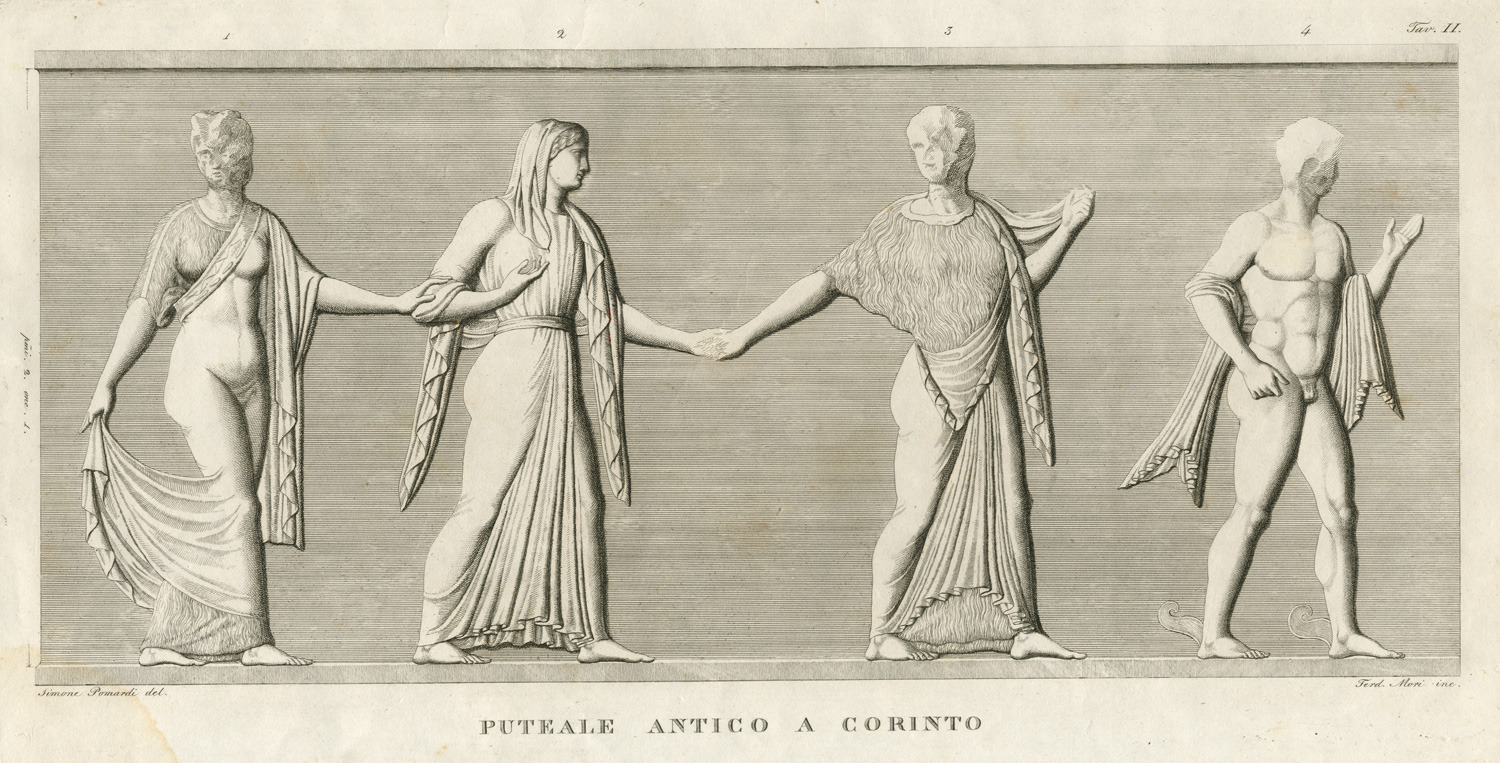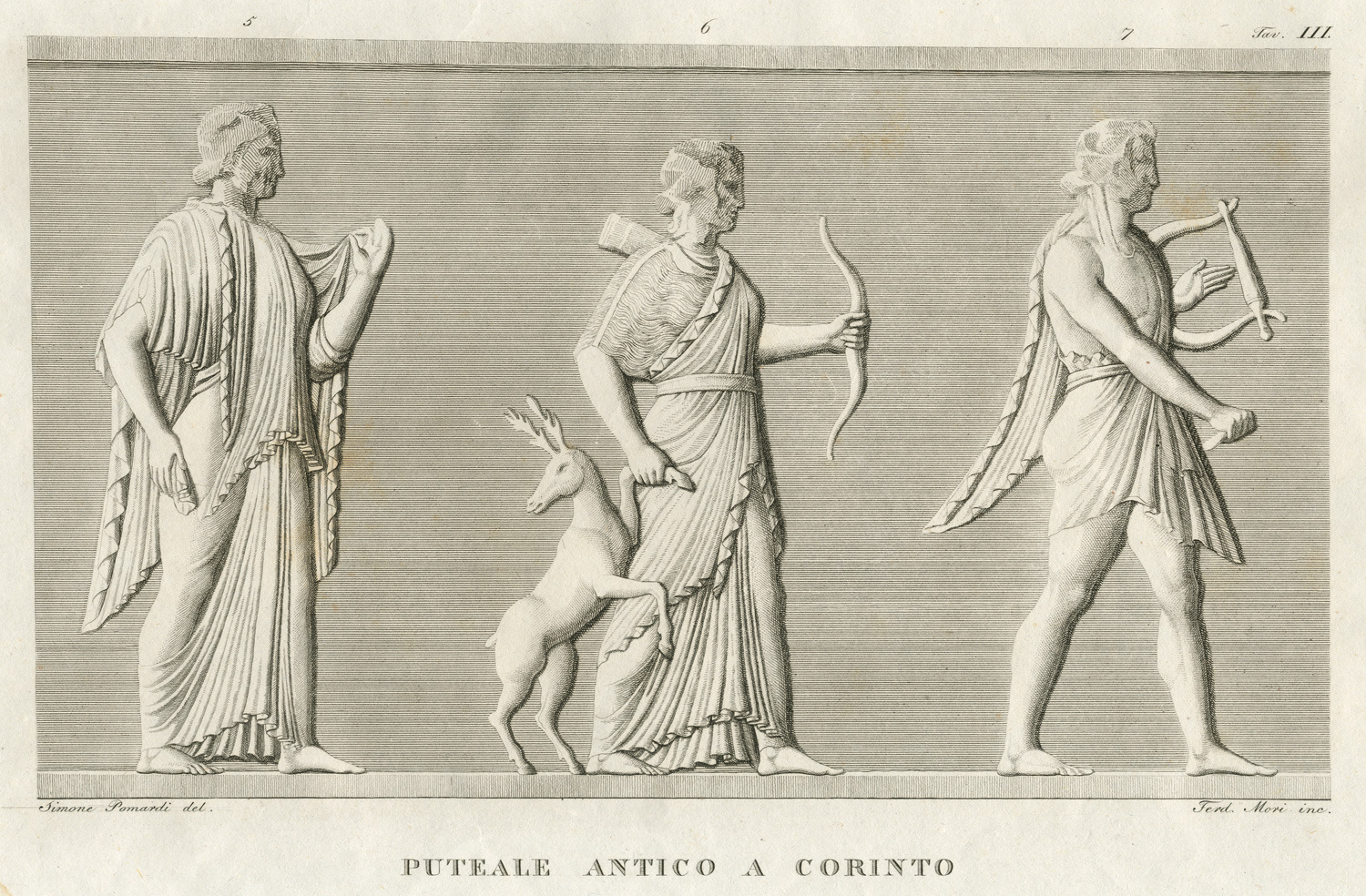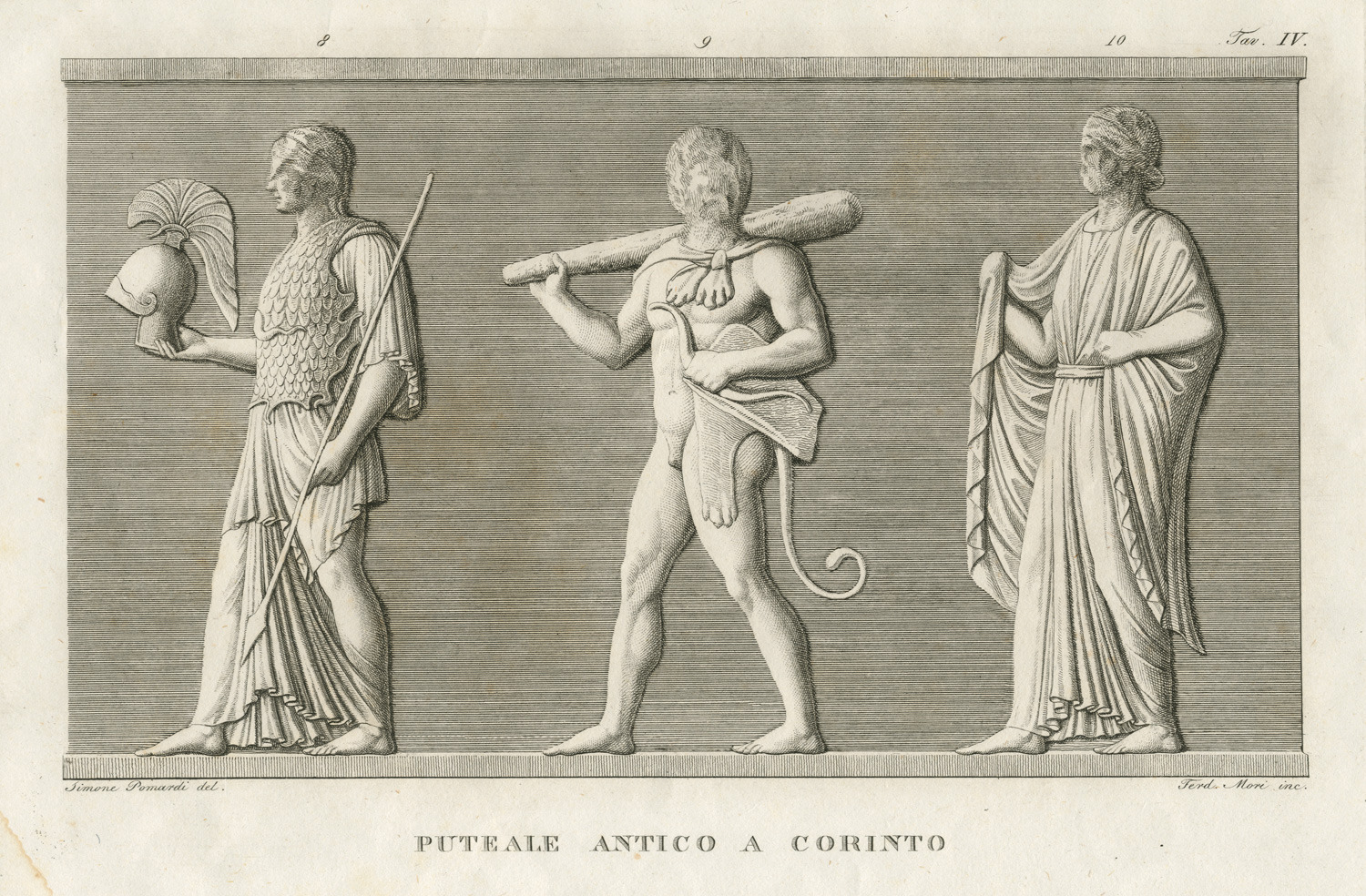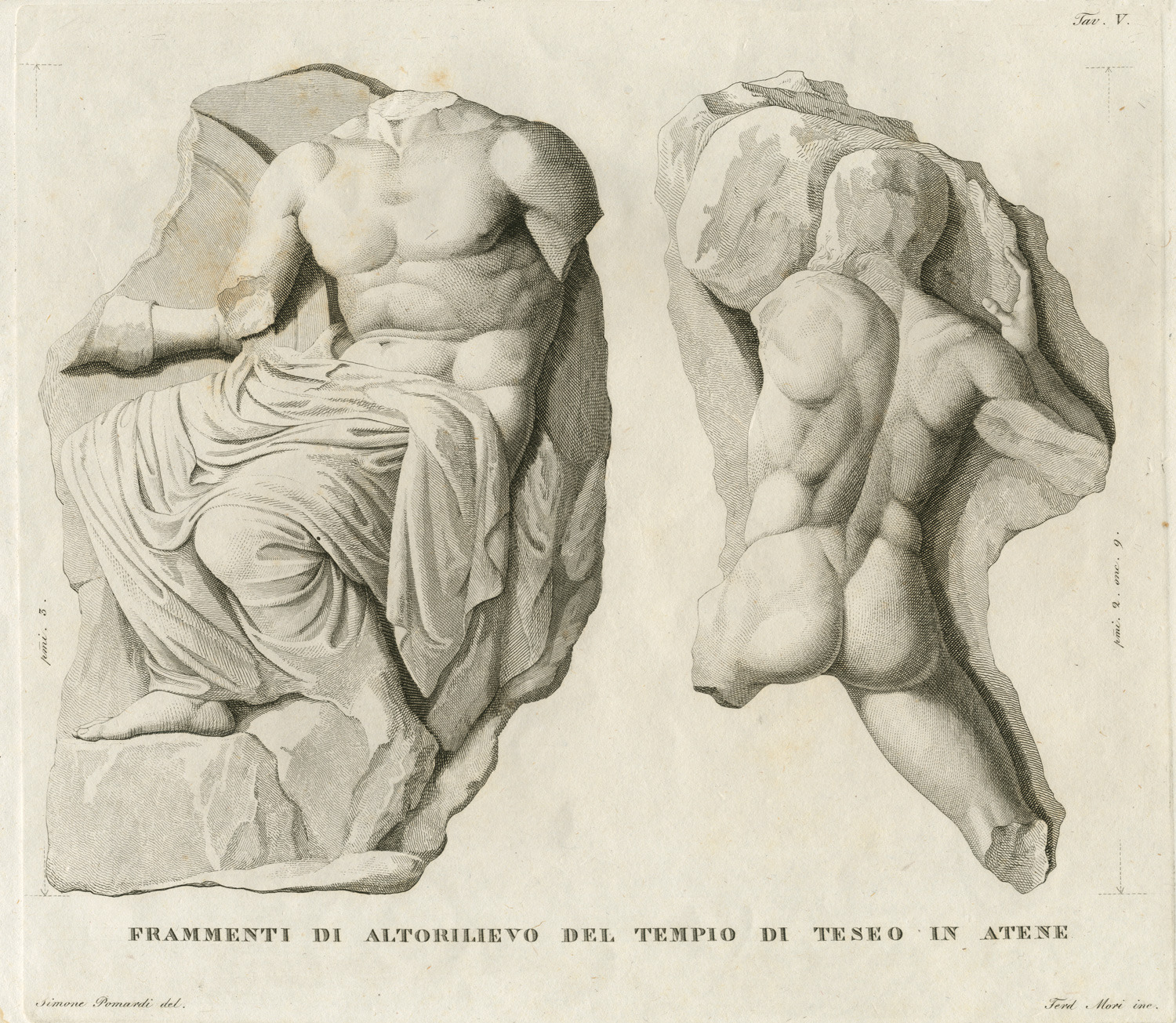Reliefs (269 Subjects)
1.View of the great altar at the Church of Saint Simeon Stylites, Syria. 2. Funerary stele from Hierapolis, near Aleppo, Syria. 3. Fragment of relief from Hierapolis.
1. Relief from entrance to a Roman Tomb, showing Apollo and Demeter, at the necropolis of Furkia. 2. Relief from entrance to a Roman Tomb, showing Hermes and Pheme, at the necropolis of Furkia. 3. Relief from entrance to a Roman Tomb, showing Ceres and Athena, at the necropolis of Furkia.4. Relief from entrance to a Roman Tomb, showing a priest, at the necropolis of Furkia. 5. Reconstructive drawing of building at Al Bara, near Aleppo. 6. Relief found at the entrance of the library of the Levant Company (or East Company) at Aleppo, Syria.
The Monument of Philopappus, Athens
Plans of the Temple of Rome and Augustus in Pula, Croatia. Elevation of the front.
Relief of angel and coat of arms of Grand Master Émery d'Amboise, from D'Amboise Gate. Ottoman inscription from the same gate (“There is no god but God, Muhammad is the messenger of God."). Relief of Virgin with infant and coat of arms of Grand Master Pierre d'Aubusson, discovered in the Jewish quarter and kept at the Franciscan monastery in Rhodes. Coat of arms of the Knights Hospitaller from the medieval town. Latin inscription «In convertendo inimicum meum retrorsum infirmabuntur et peribunt a facie tua» (Psalms 9:3 “When mine enemies are turned back, they shall fall and perish at thy presence”), referring to the siege of Rhodes by the Ottomans.
Reliefs from ancient Ialyssos. Funerary steles from the area of the Roman aqueduct at Rodini, Rhodes.
View of the Castle of Bodrum, or Castle of Halicarnassus.
A colossal vase near Limassol in Cyprus.
Antiquities from Cythera, which according to the author come from the Temples of Aphrodite.
1. Relief from Gytheio. Warrior overcomes his enemy, probably an Amazon. 2. Base of ancient stele from Sparta 3. Ancient inscription from Sparta.
Relief from Gytheio, most probably from the Temple of Nike.
Reliefs and funerary steles from Chios and Lesbos.
The Horologion of Andronikos Kyrristos (Tower of the Winds) in Athens. Plan of the monument.
Composition: The Monument of Philopappus. Scene of excavations at Thoricos, ancient settlement near Lavrio.
Composition: The Temple of Poseidon in Sounio together with the Monument of Philopappus in Athens.
Relief and capital of column from Bunarbaşı, village, erroneously identified in the nineteenth-century with Troy.
Reliefs from the monument of Taq-e Bostan on the ouskirts of Kermanshah in Persia. Im. 1, 2: The king hunting deer and boars. 3: The coronation of shah Khosrau II, with the gigantic figure of the king mounted on his horse at the centre of the composition. 4: The coronation of Shapur III, with the king and his father, Shapur II.
Im. 1: Capital found near Mount Behistun in Persia, possibly representing king Khosrau. 2: Reliefs of Mithridates II of Parthia and Gotarzes II from Behistun. 3: Reliefs framing the inscription of Darius I the Great (Behistun inscription) at Mount Behistun.
Ancient reliefs from the island of Kos. On the first (left top), Zeus, Hera and Hercules. On the second (right top), Apollo with the Muses. On the third (bottom left), Hercules with the Lion of Nemea. On the fourth (bottom right), the contest of Apollo with the Satyr Marsyas.
Fig. 1. Part of stele from Bodrum (anc. Halicarnassus). This stele was most probably at the site of the Mausoleum of Halicarnassus. Fig. 2. Metopes from the Mausoleum of Halicarnassus. These Metopes, on which scenes from the Amazonomachia are depicted, are some of the very few elements of the Mausoleum preserved today, because the locals used them to cover several parts of the sewer system. Inscription from the Castle of Halicarnassus, also know as Castle of Saint Paul.
View of the great hypostele of the Temple of Amun-Re at the Precinct of Amun-Re in Karnak.
View of the quarries of Gebel el-Silsila, near Aswan.
Capitals of Corinthian order and stele from Thebes.
Horologion of Andronikos Kyrristos (Tower of the Winds) in Athens.
Title page. Ancient relief, most possibly from the mouth of a well (puteale), depicting Heracles, Athena, Apollo and Artemis.
The relief from the Lions' Gate in the Acropolis of Mycenae.
Relief from the mouth of a well (puteale), from Ancient Corinth.
Relief from the mouth of a well (puteale), from Ancient Corinth, depicting Artemis and Apollo.
Relief from the mouth of a well (puteale), from Ancient Corinth, depicting Athena and Heracles.
Fragments of the metopes of the Temple of Hephaestus in Athens.


